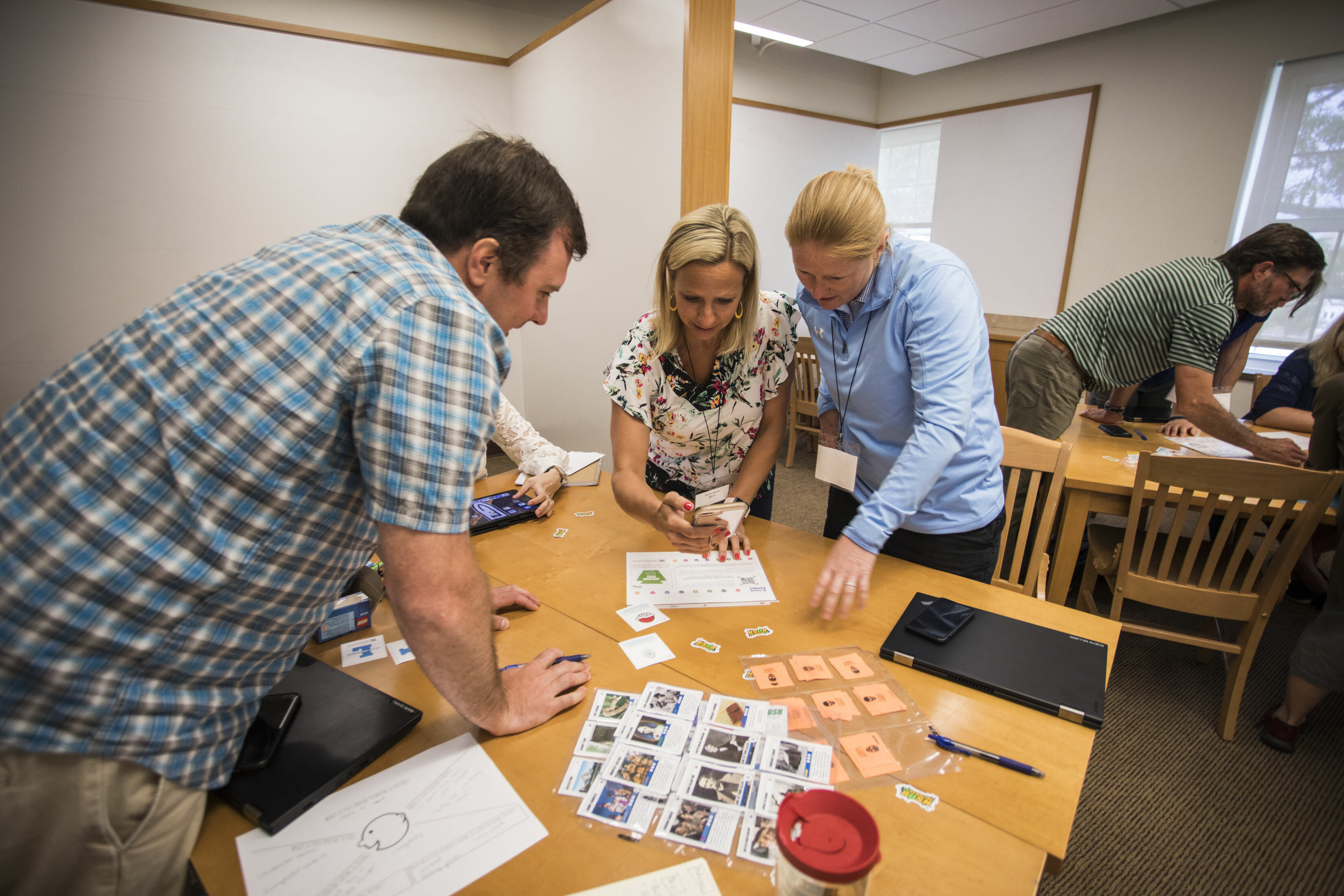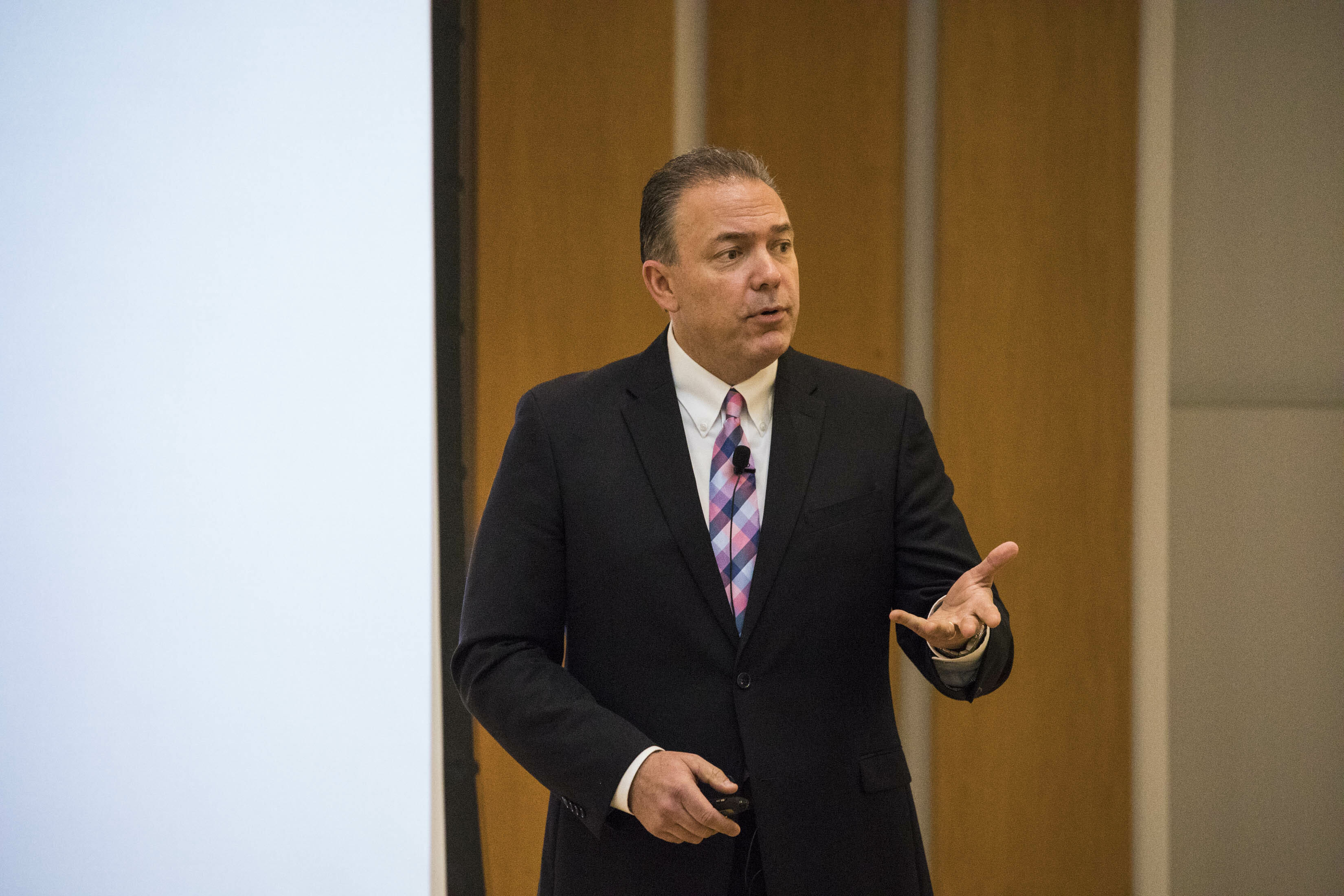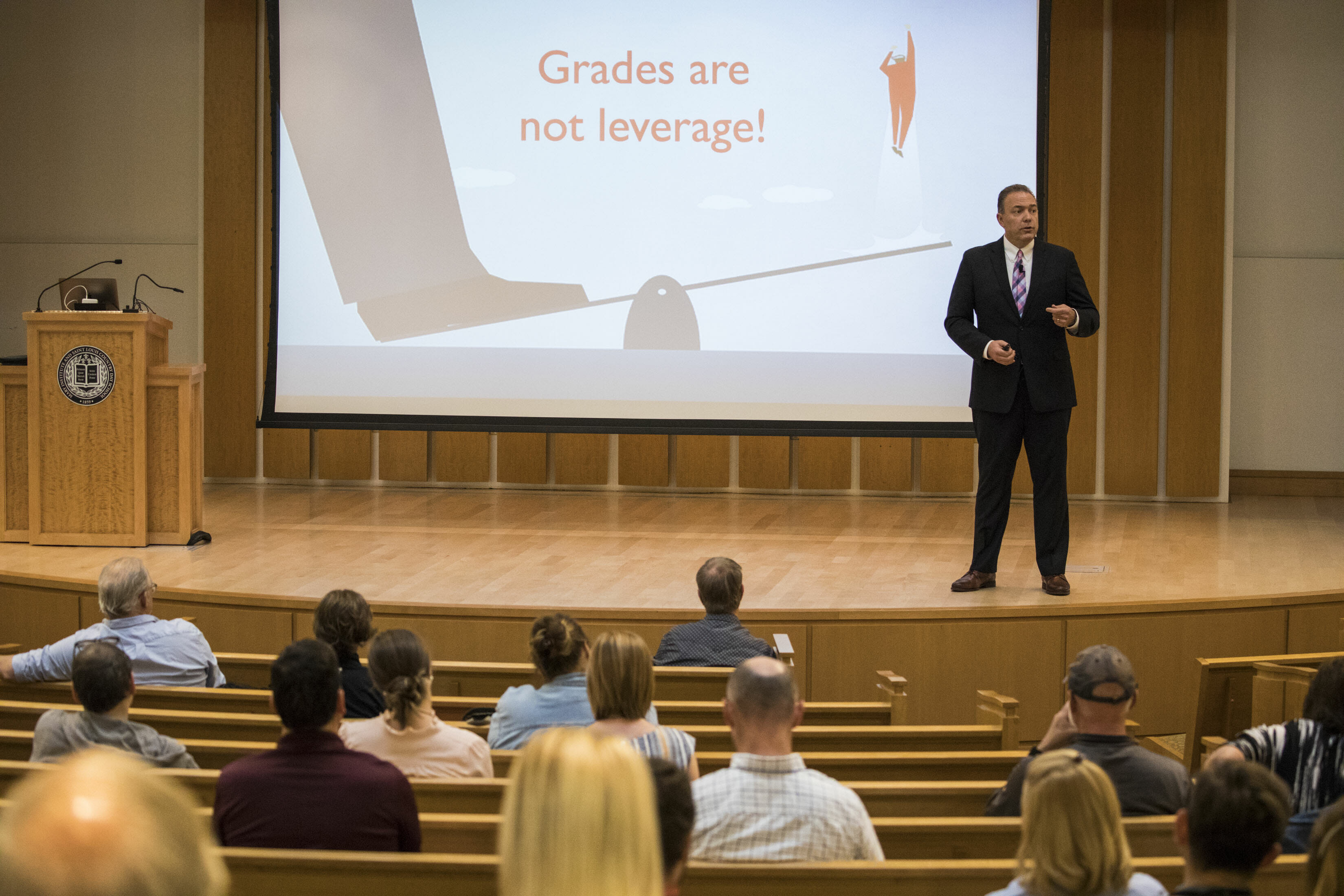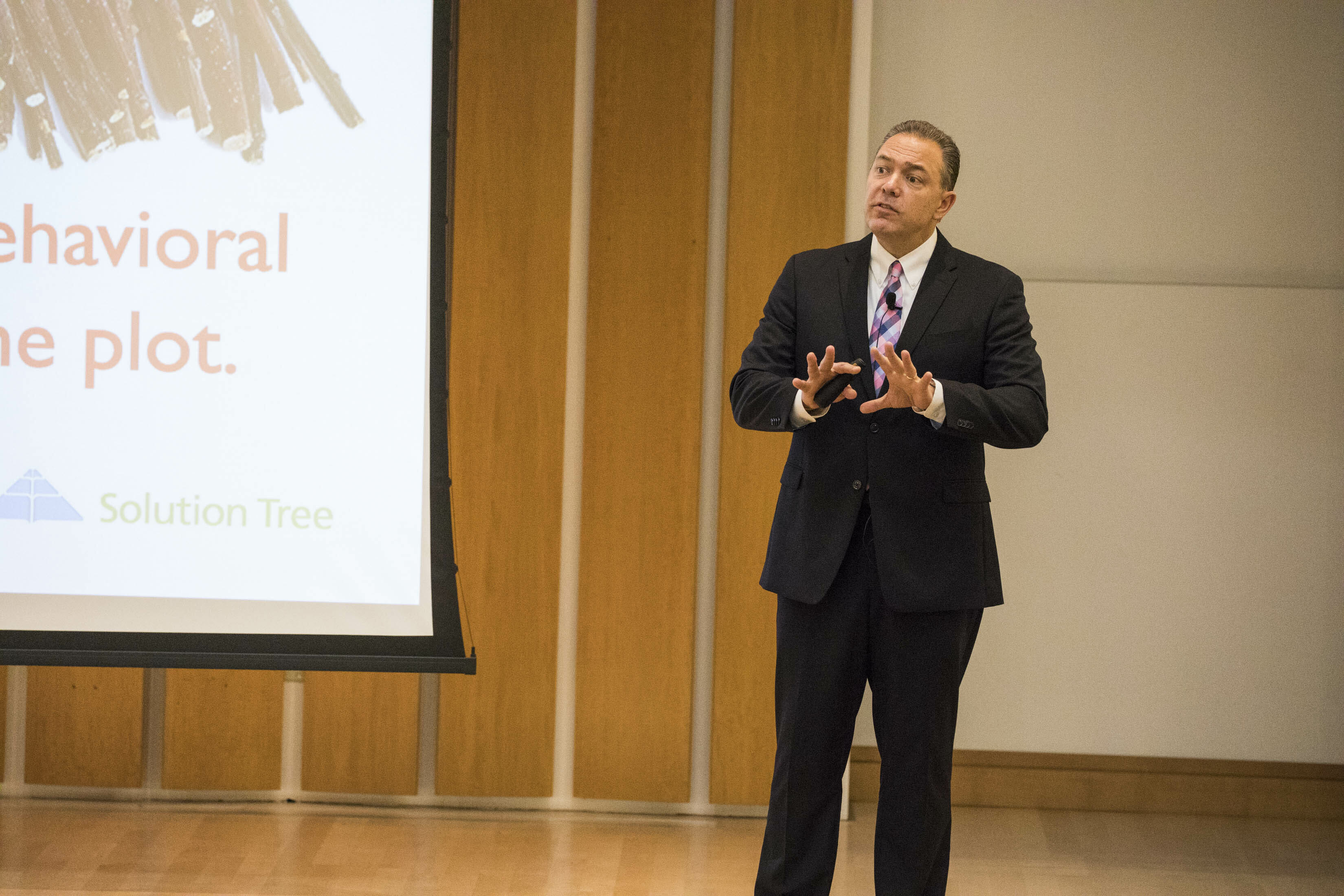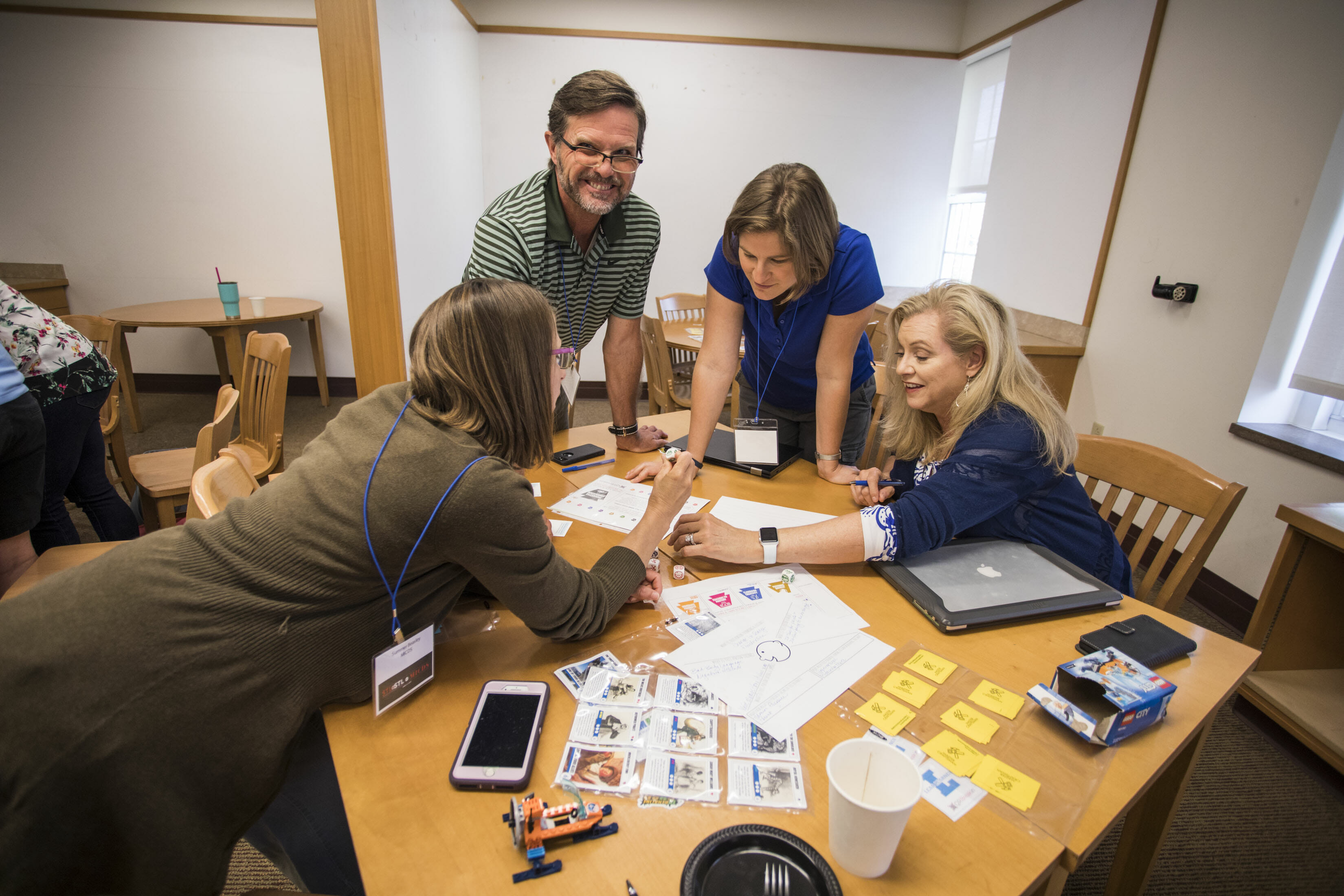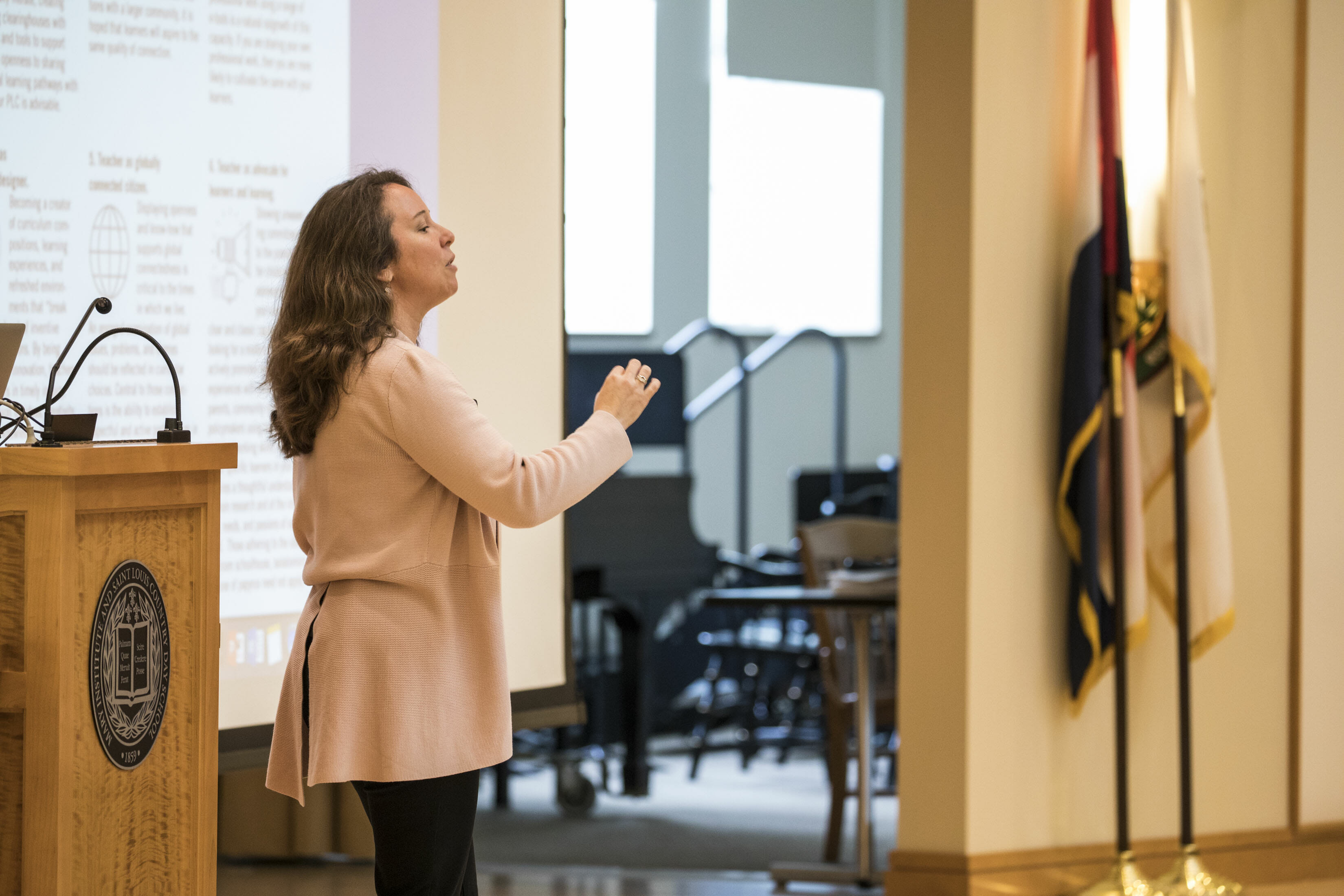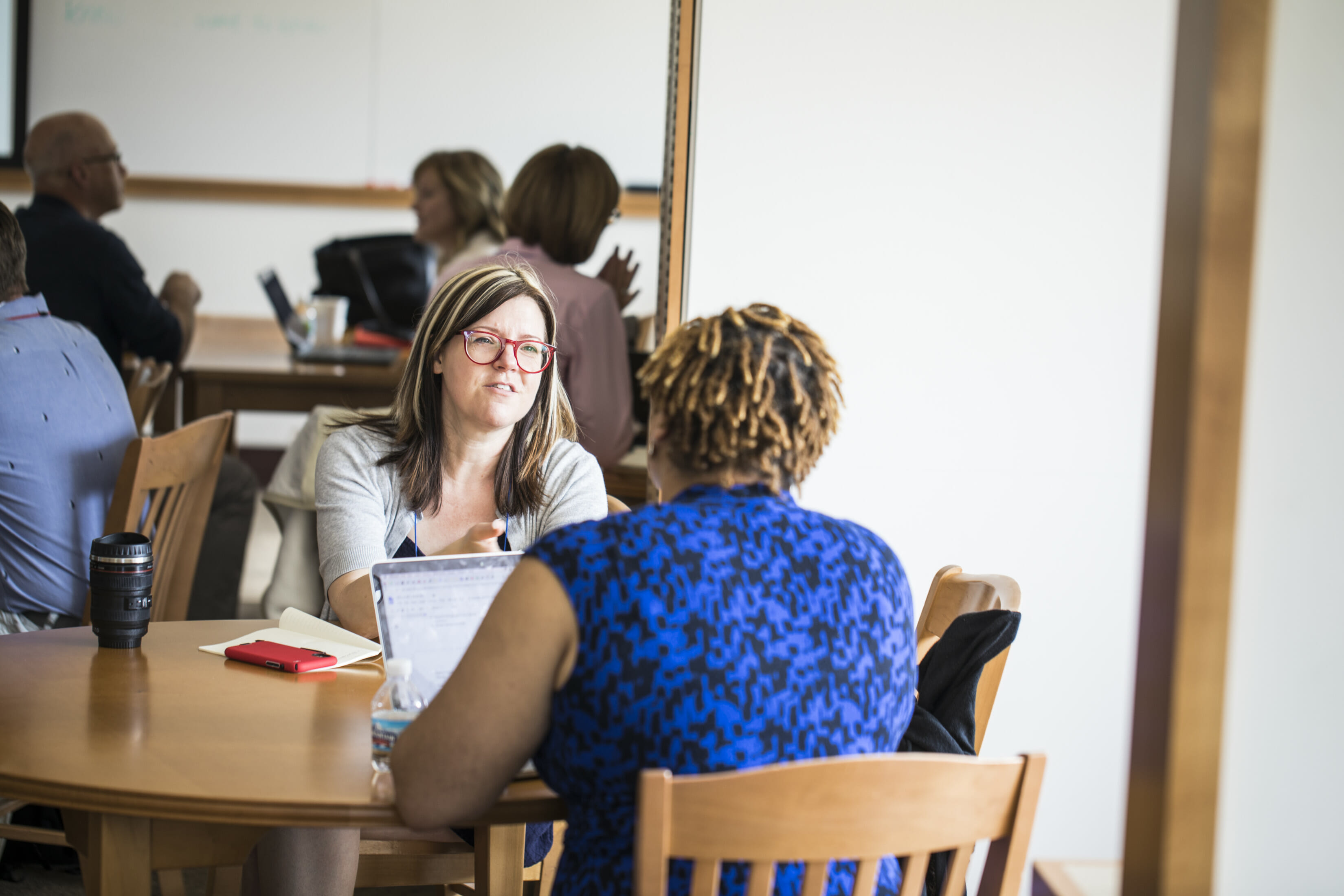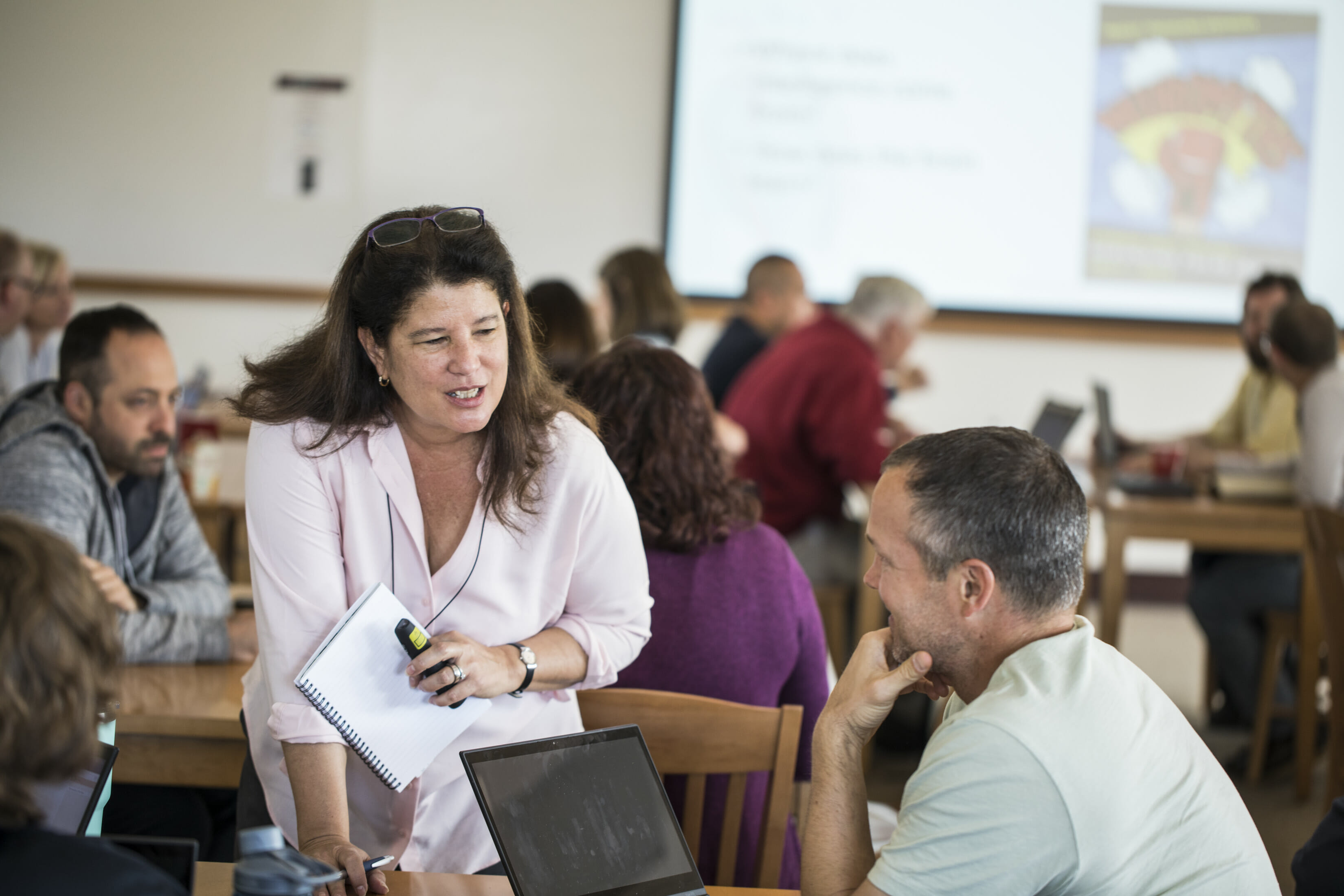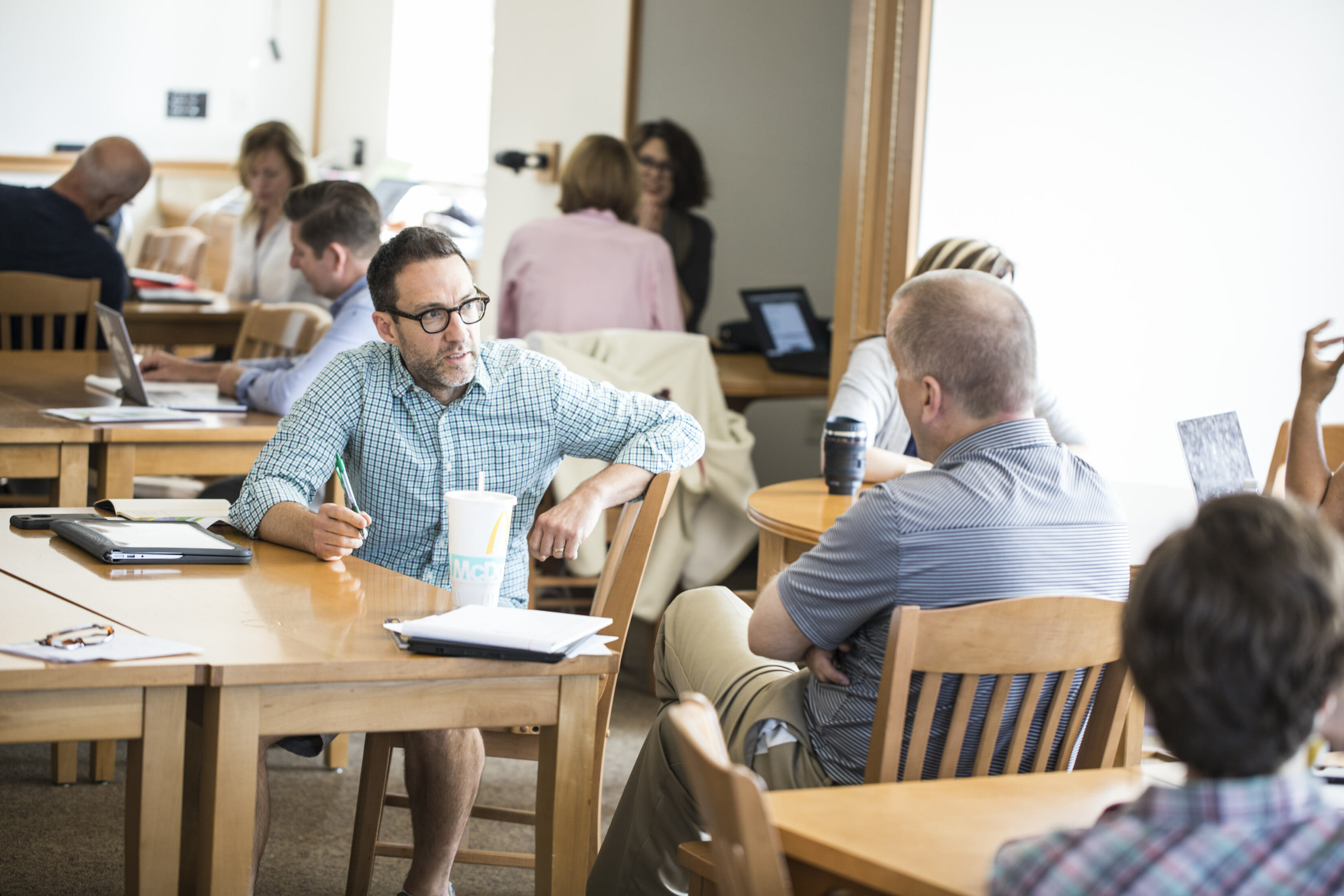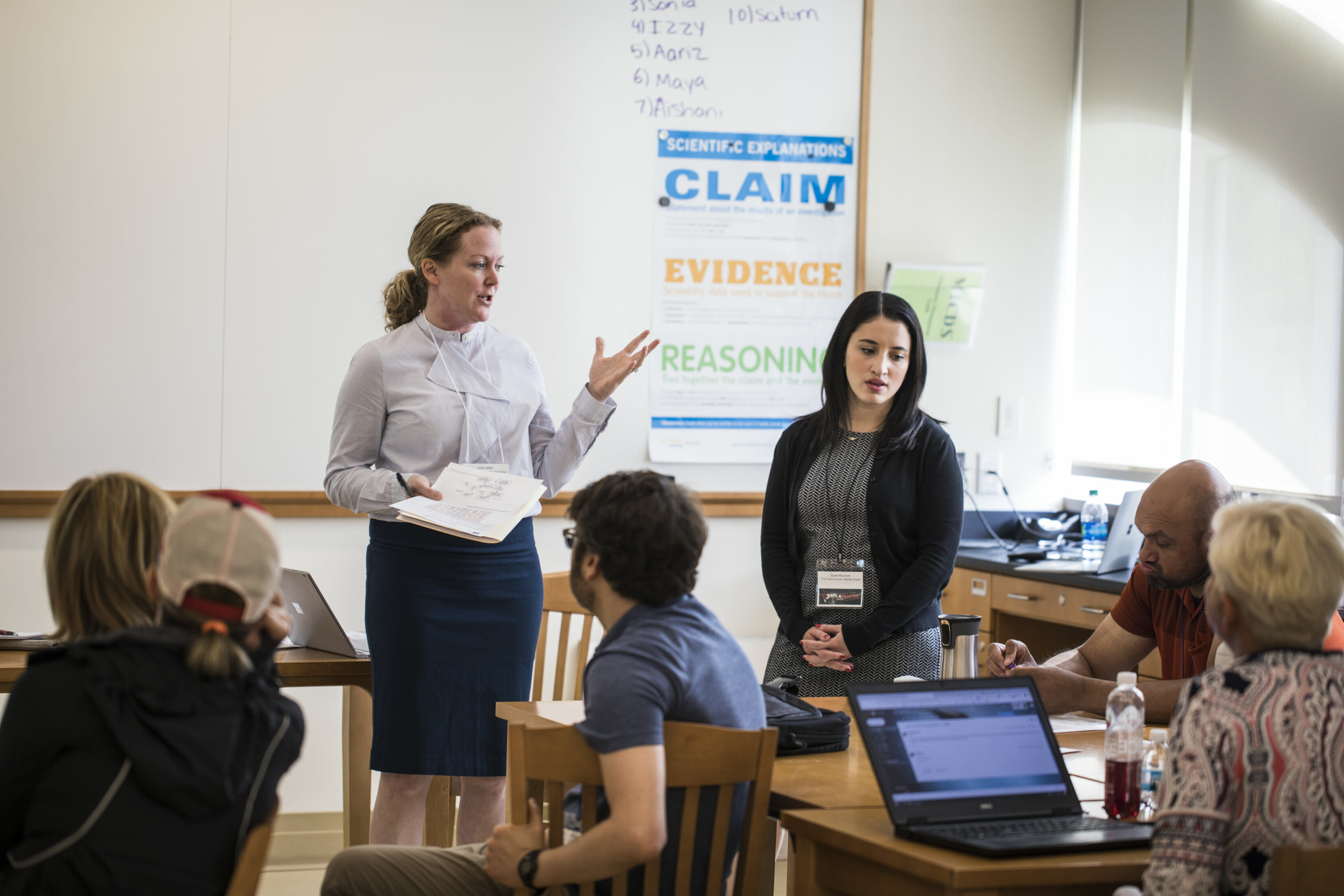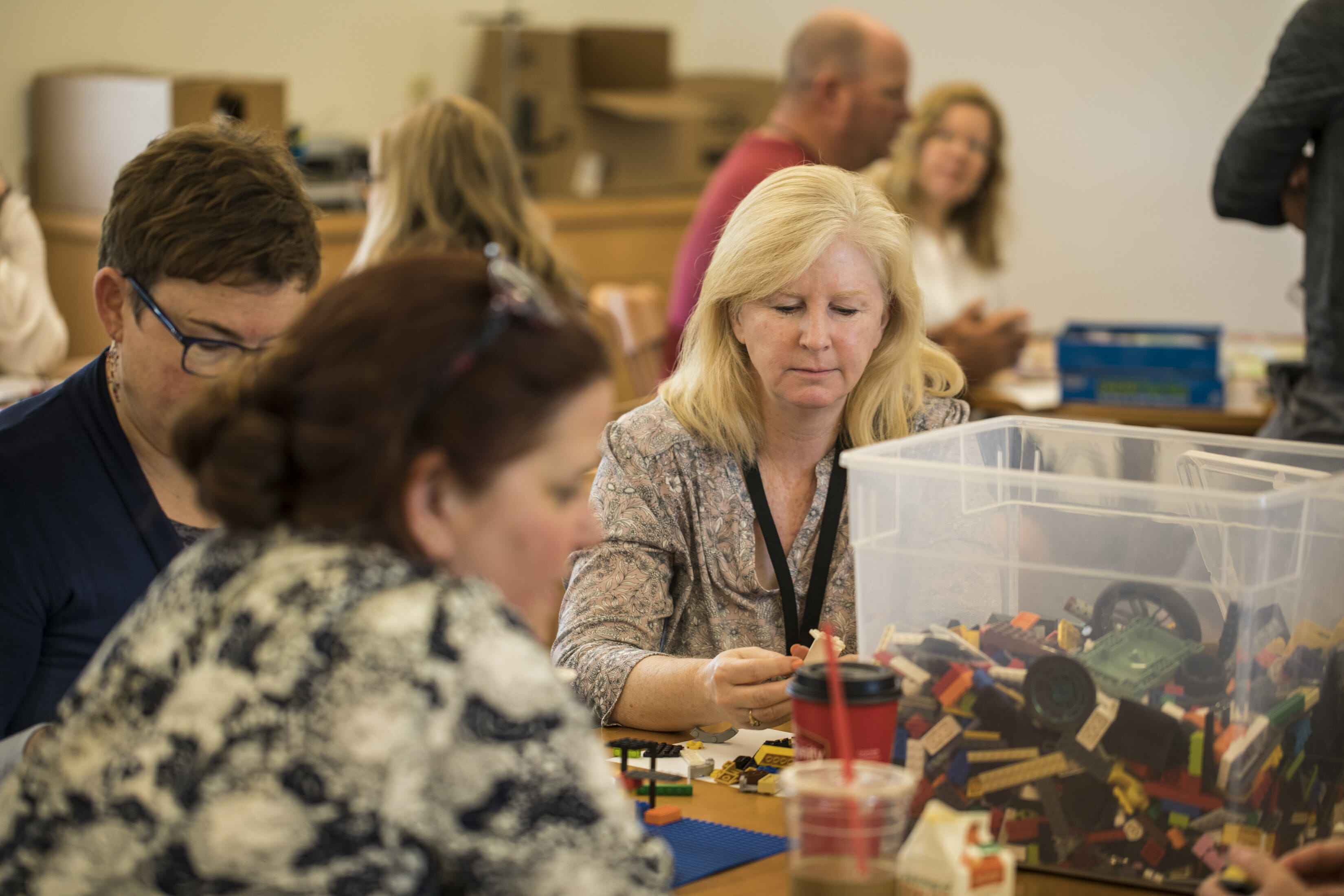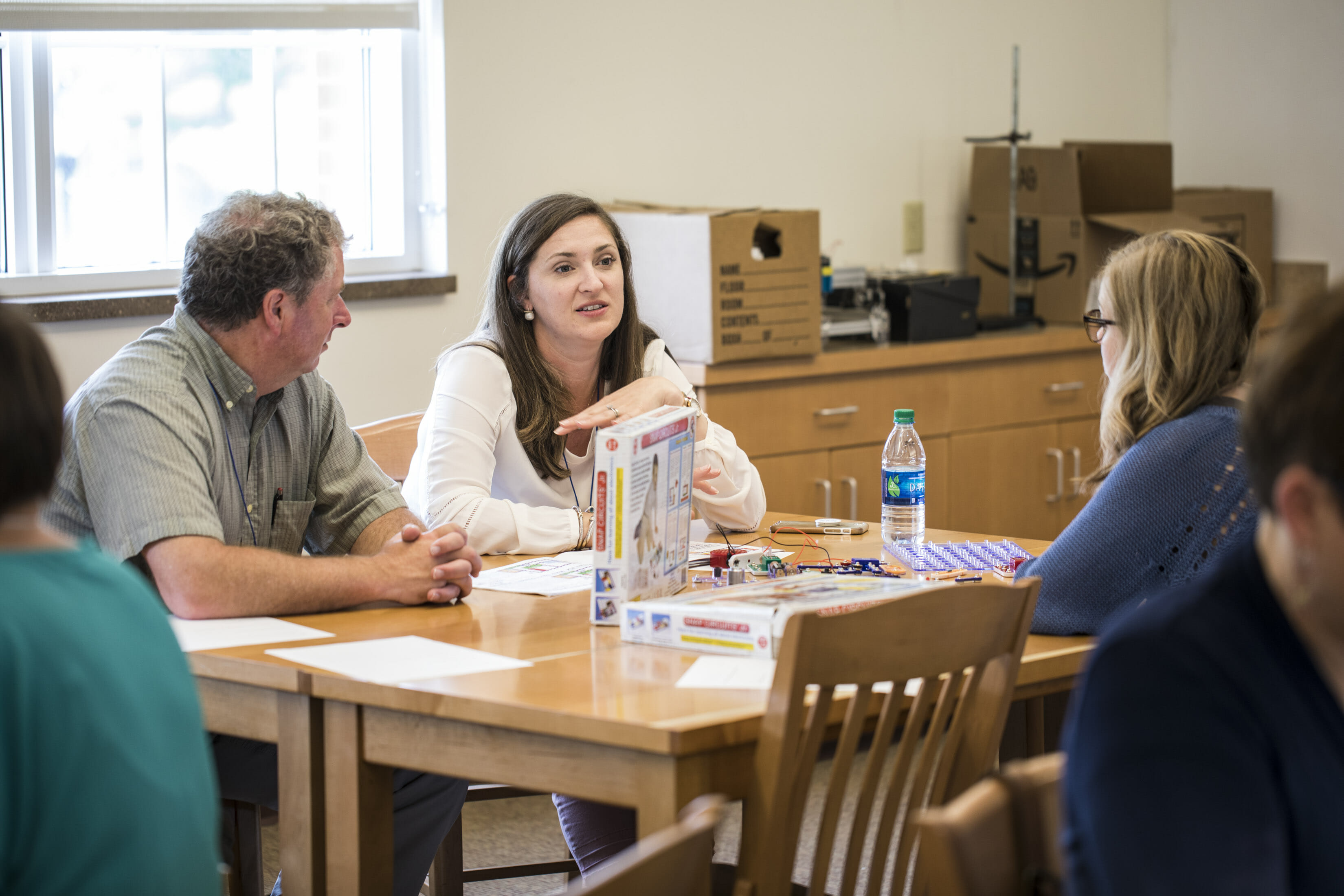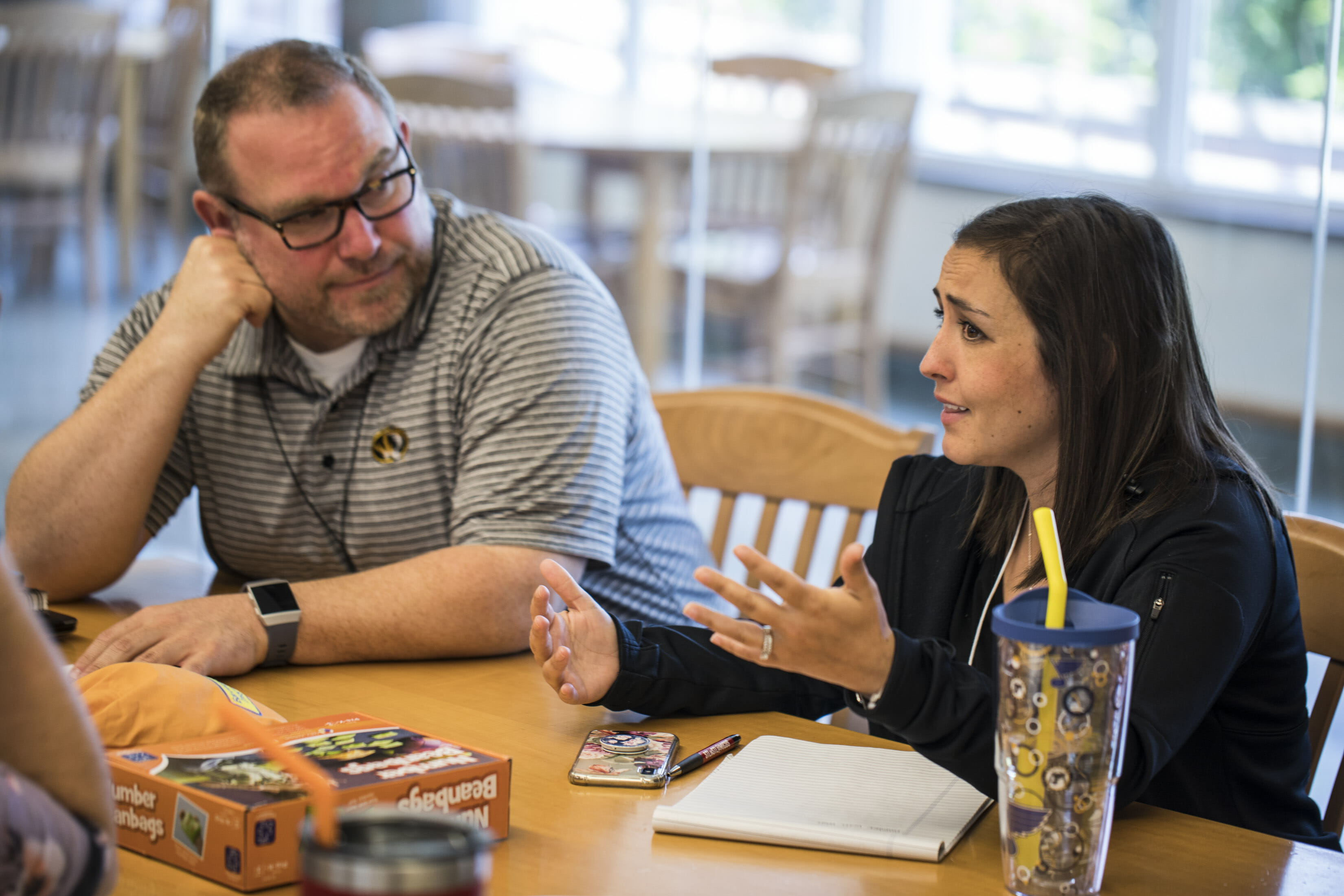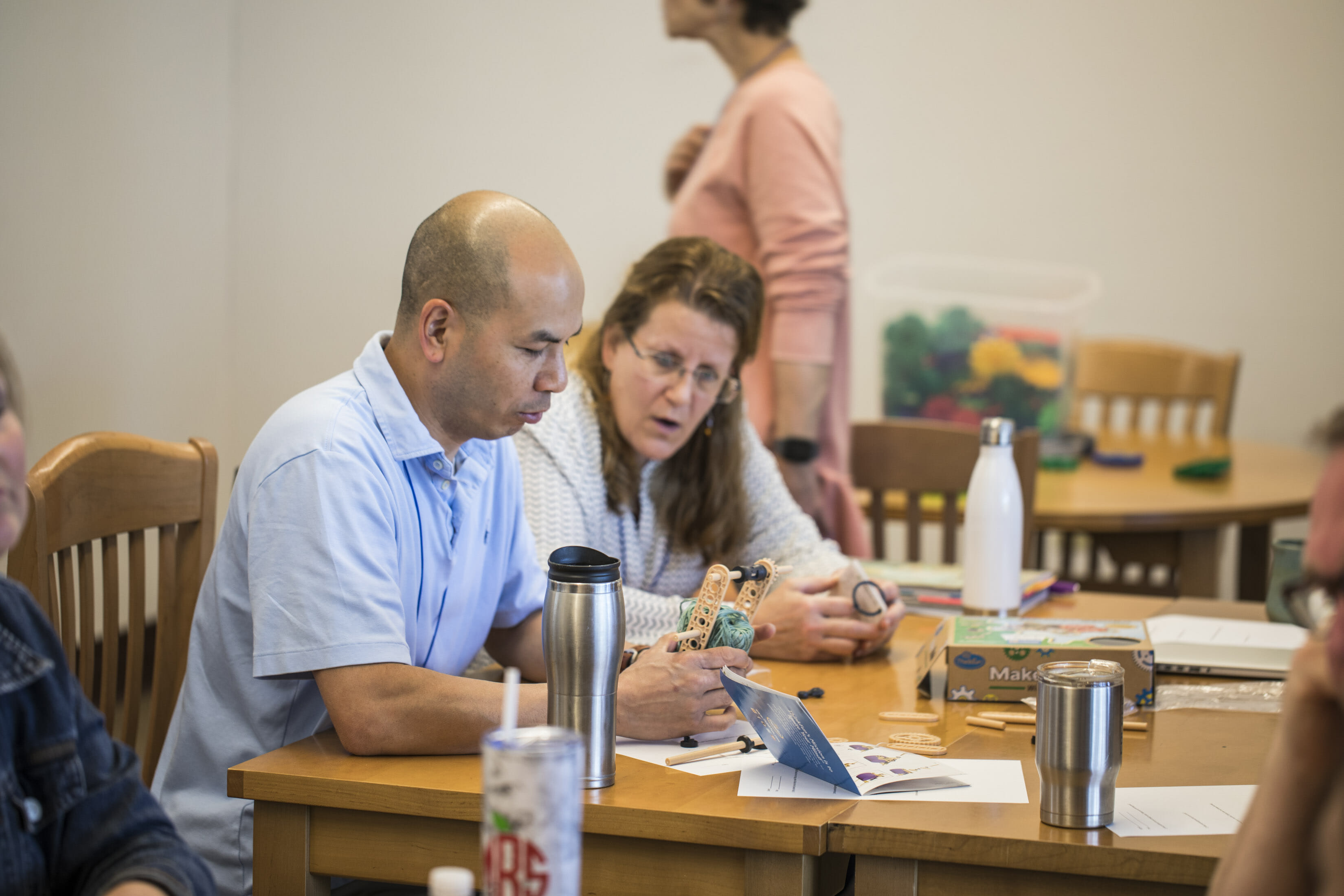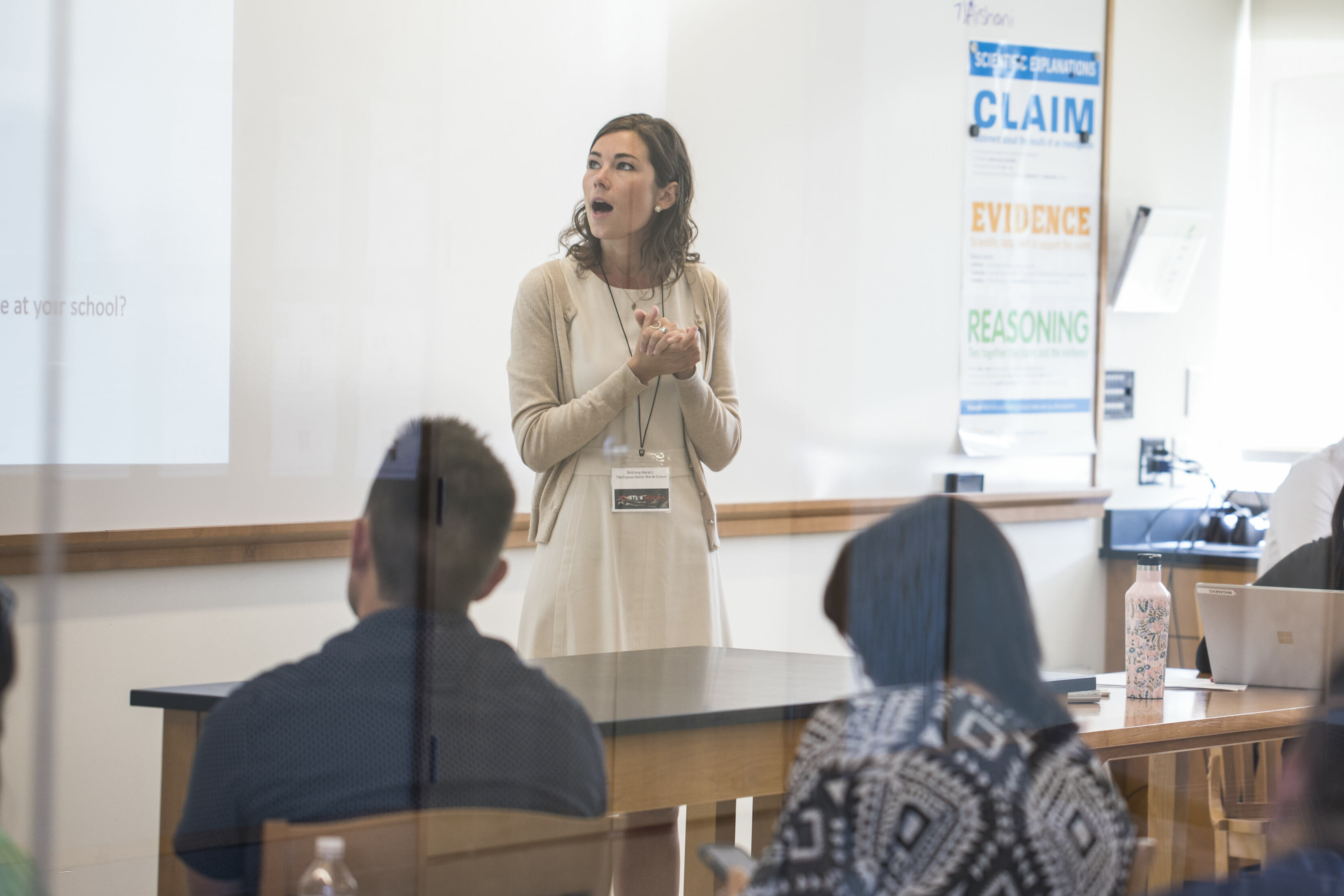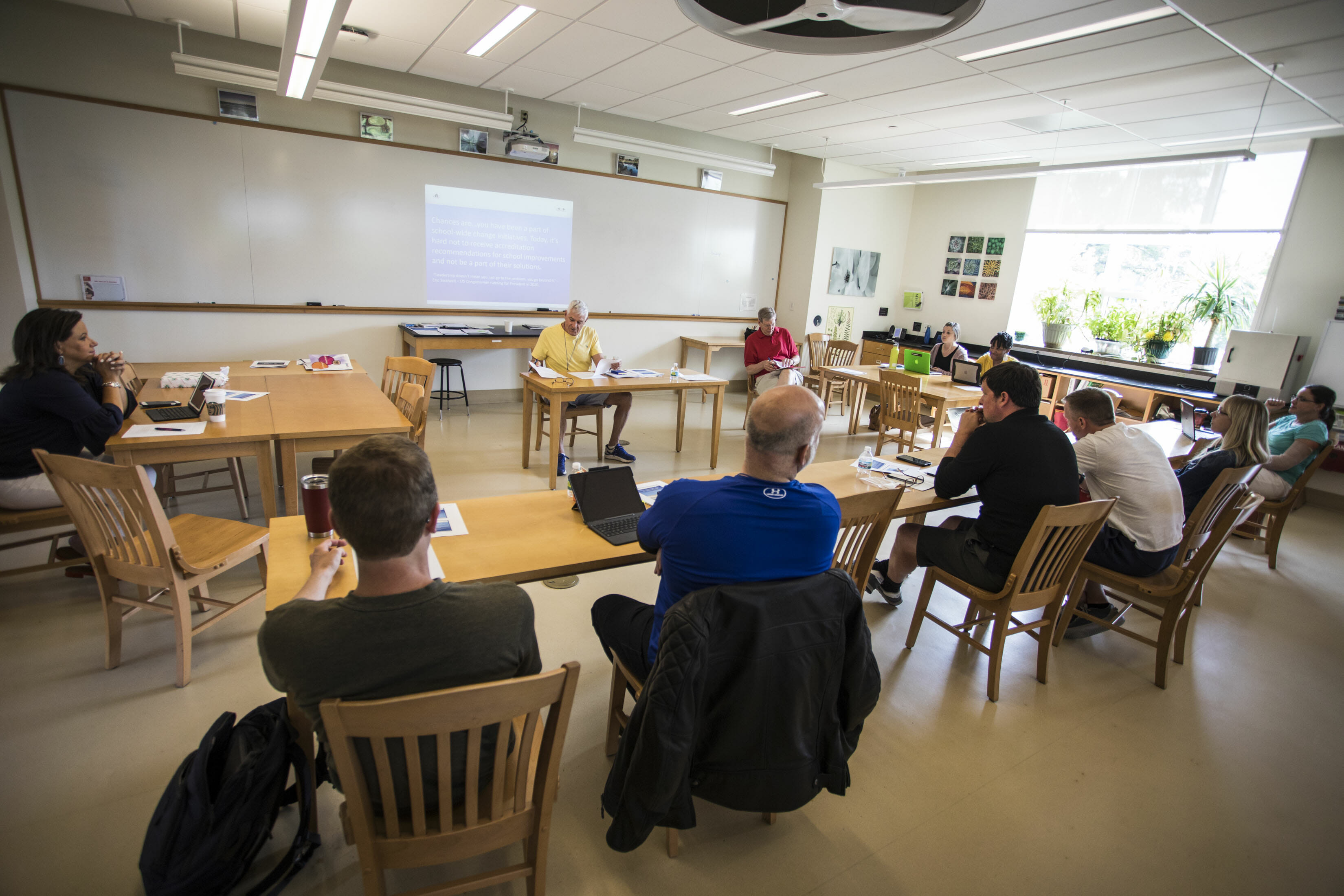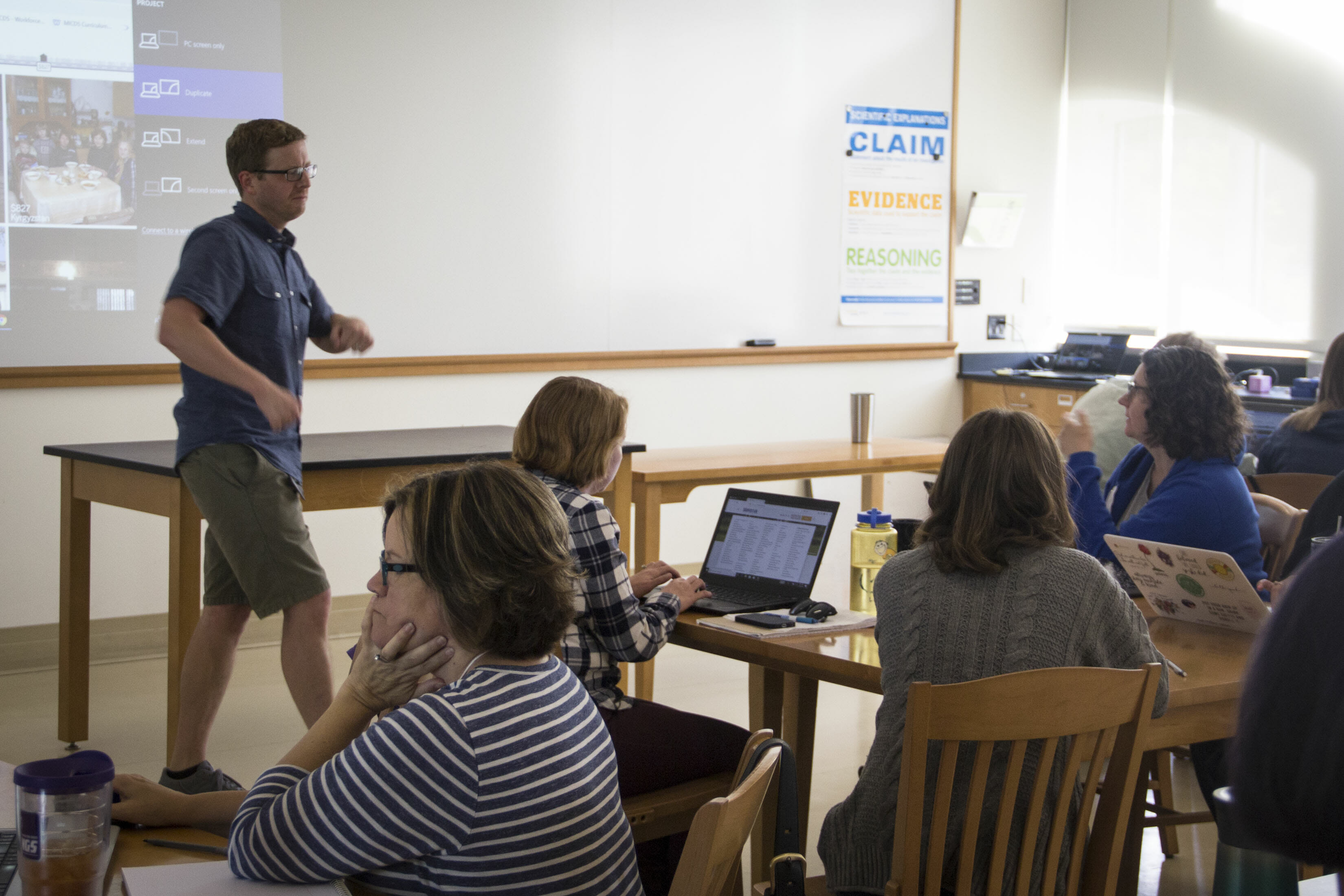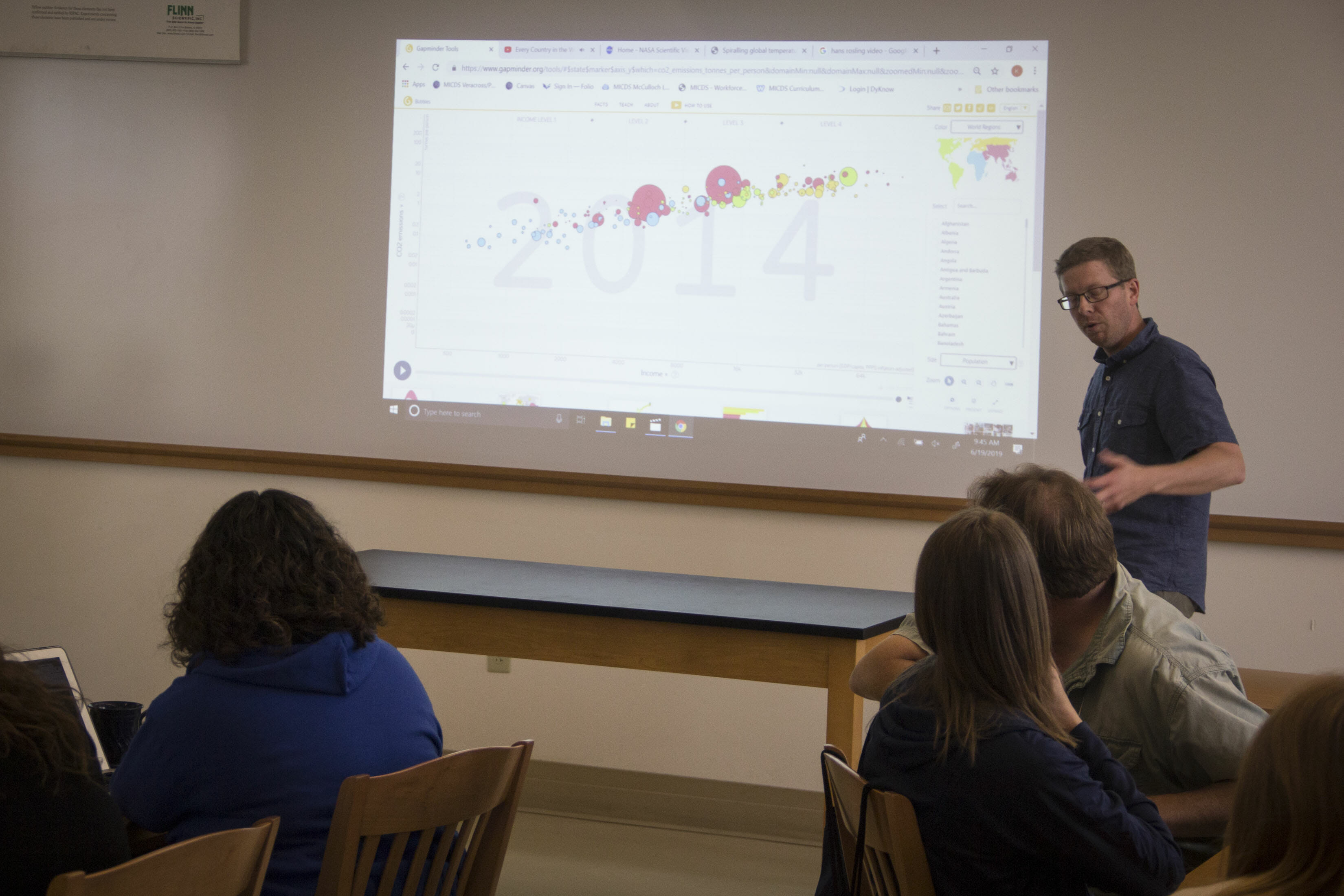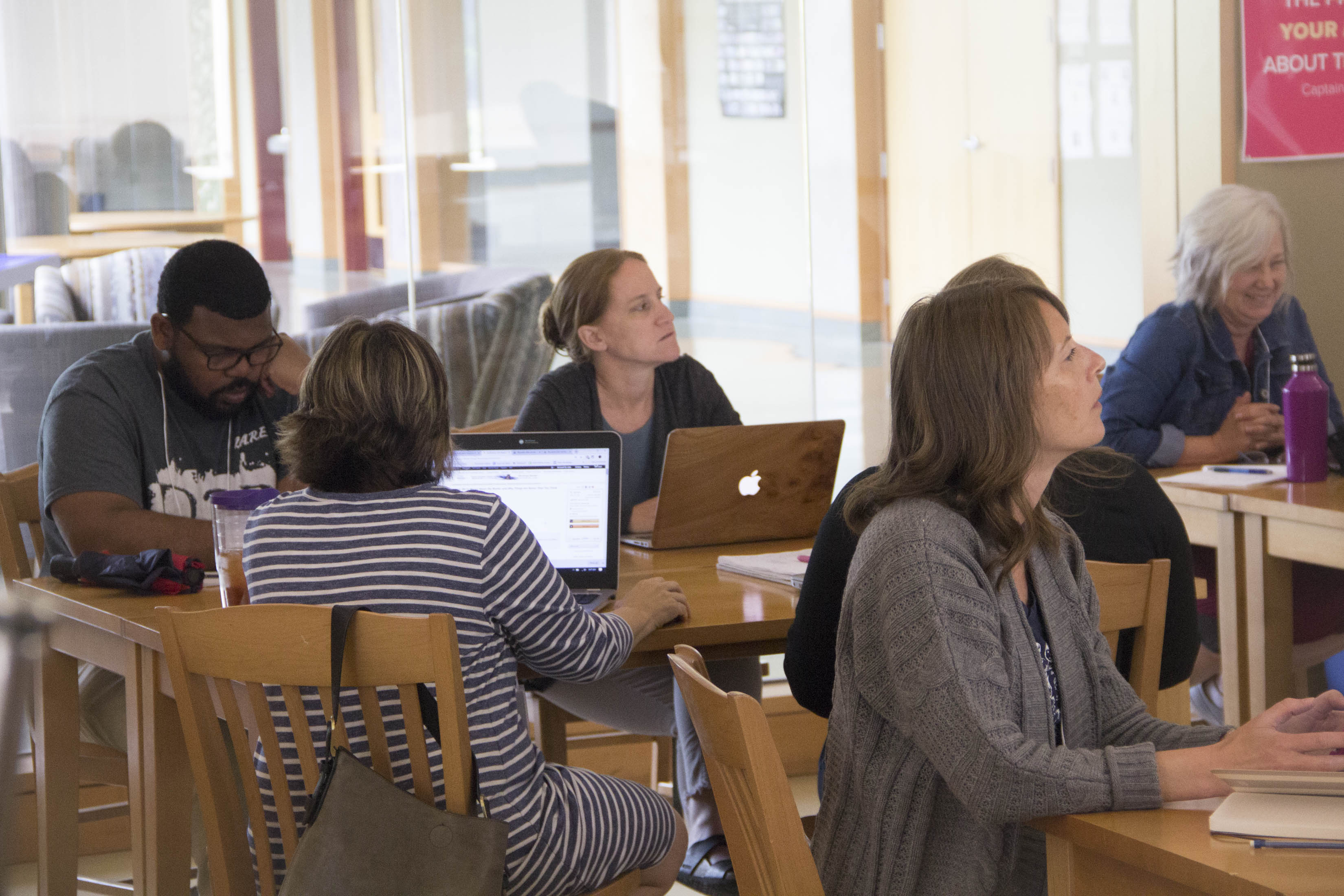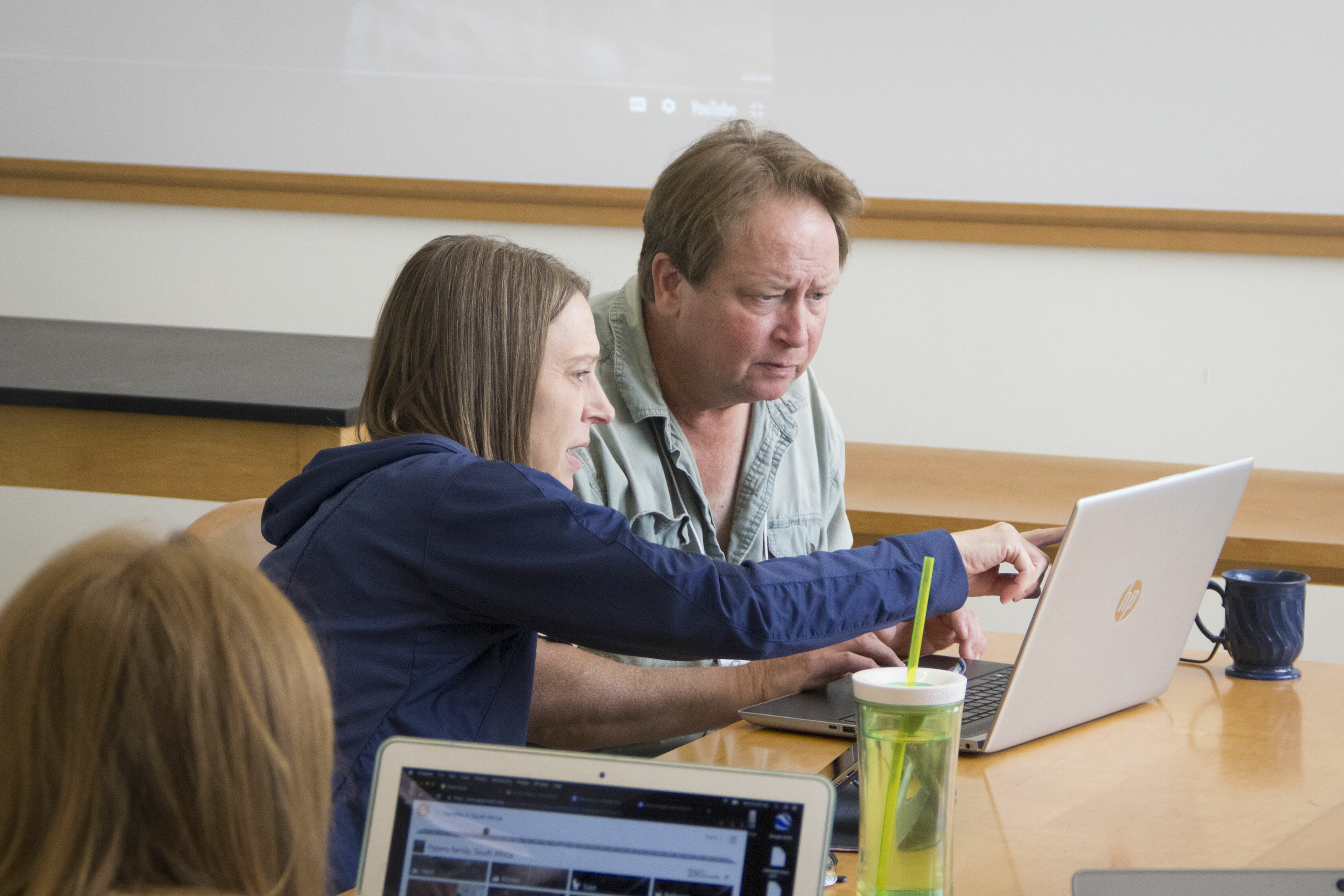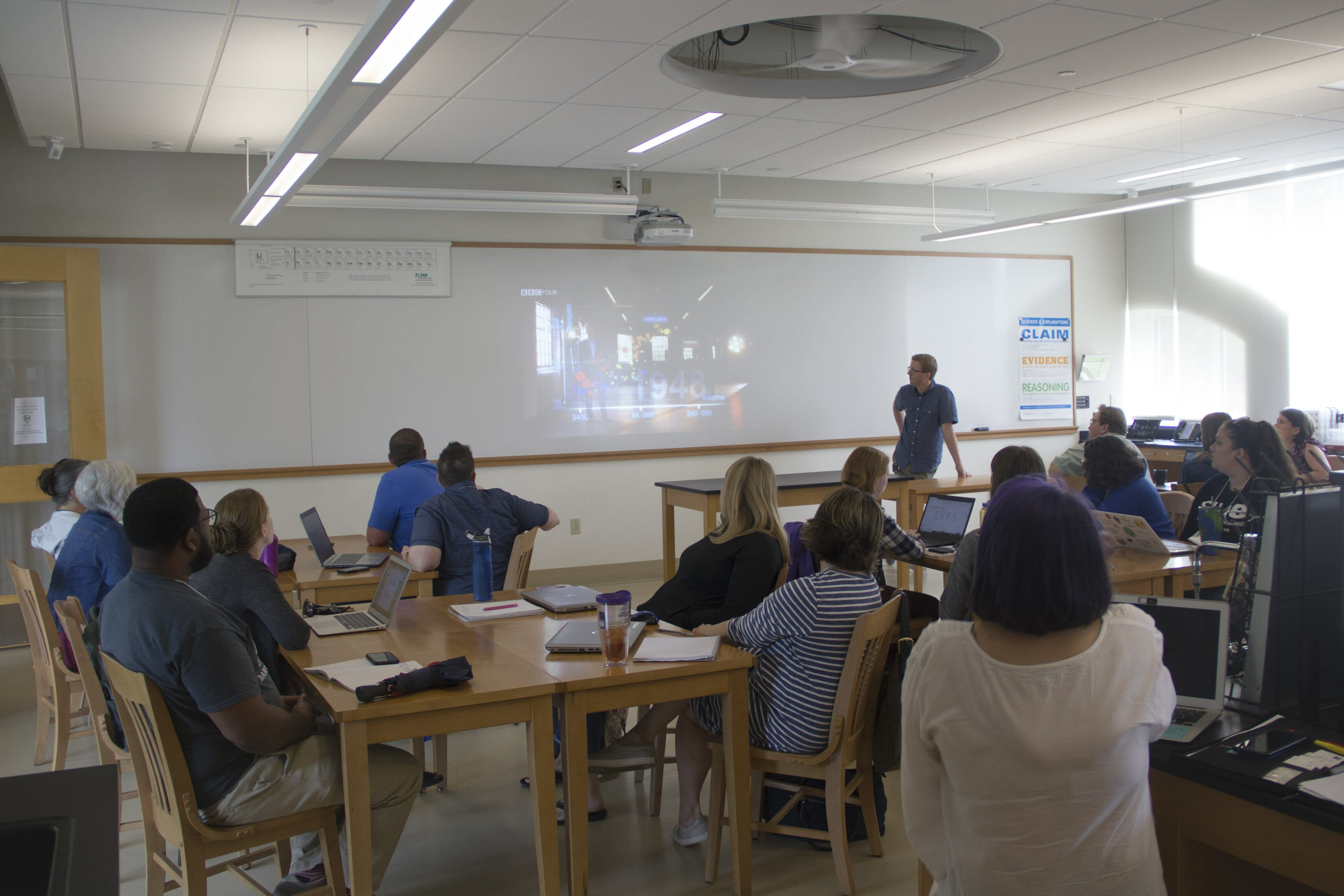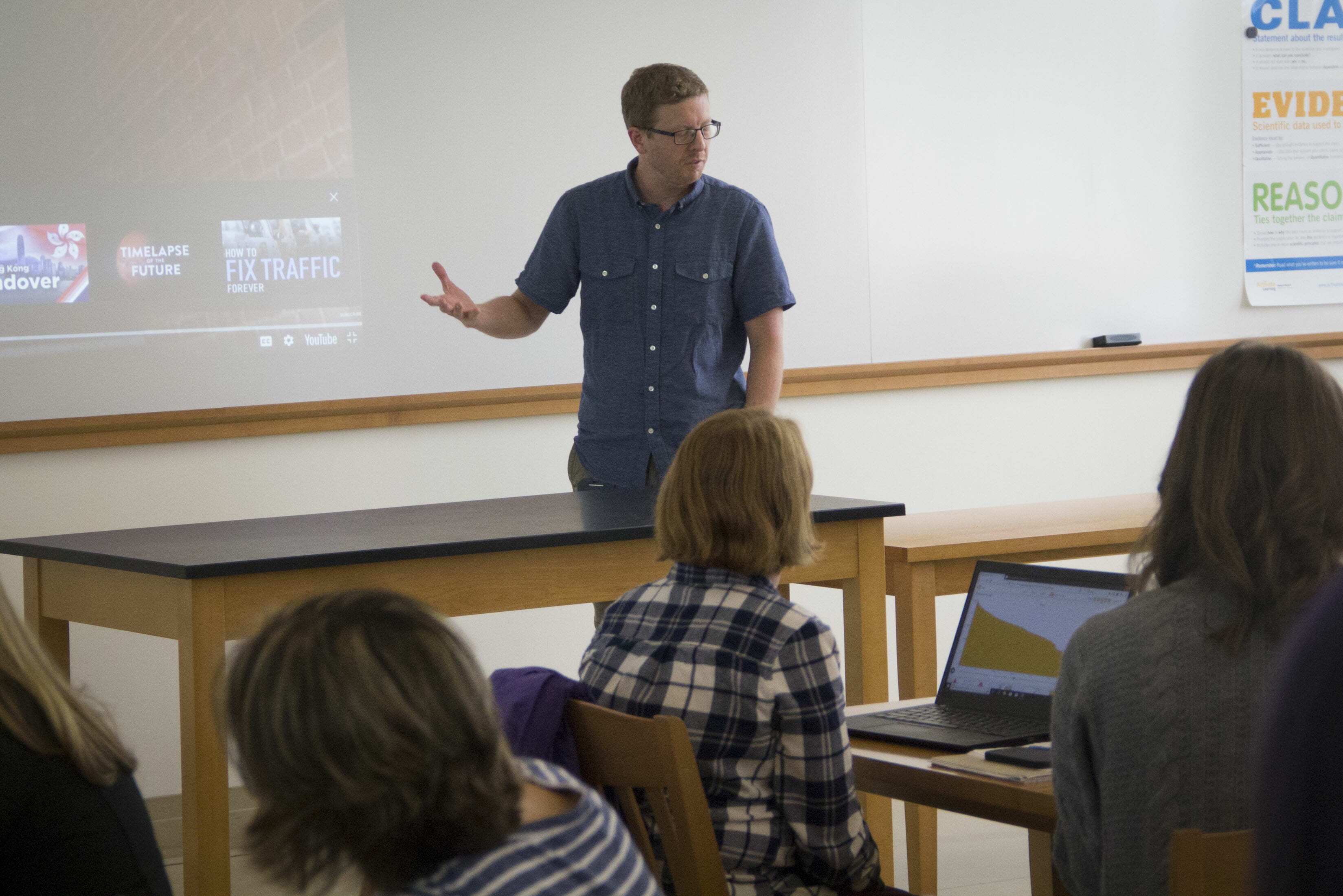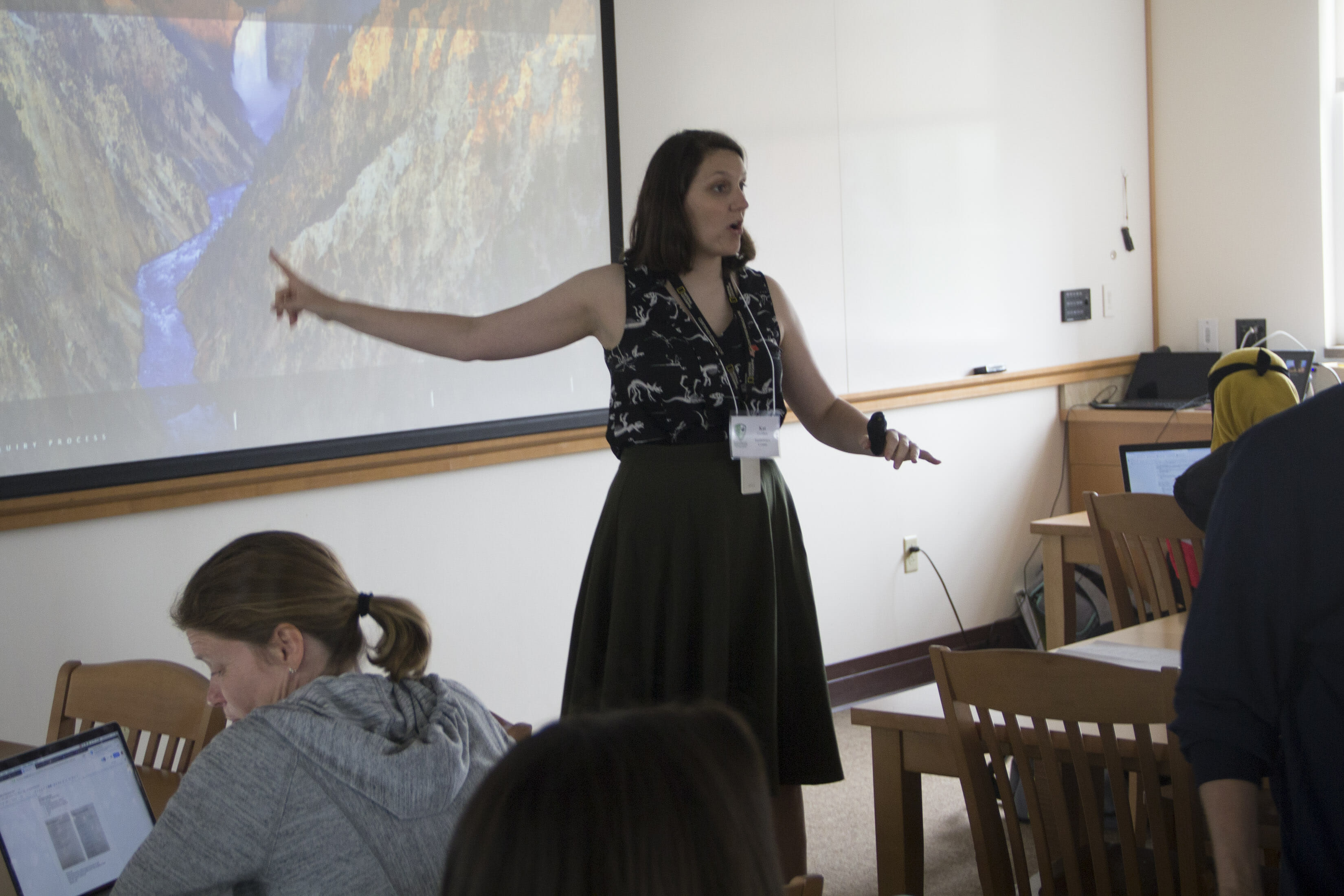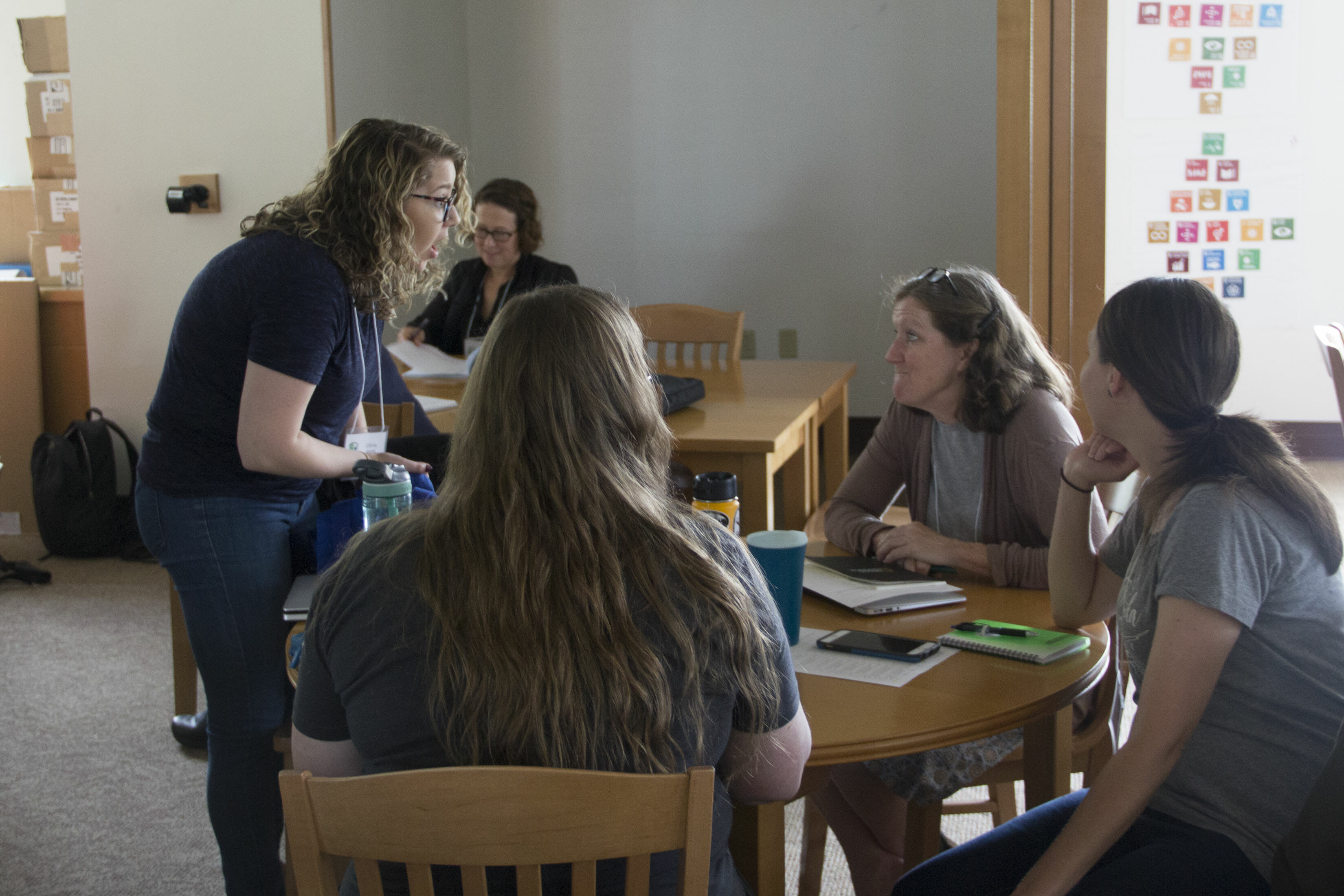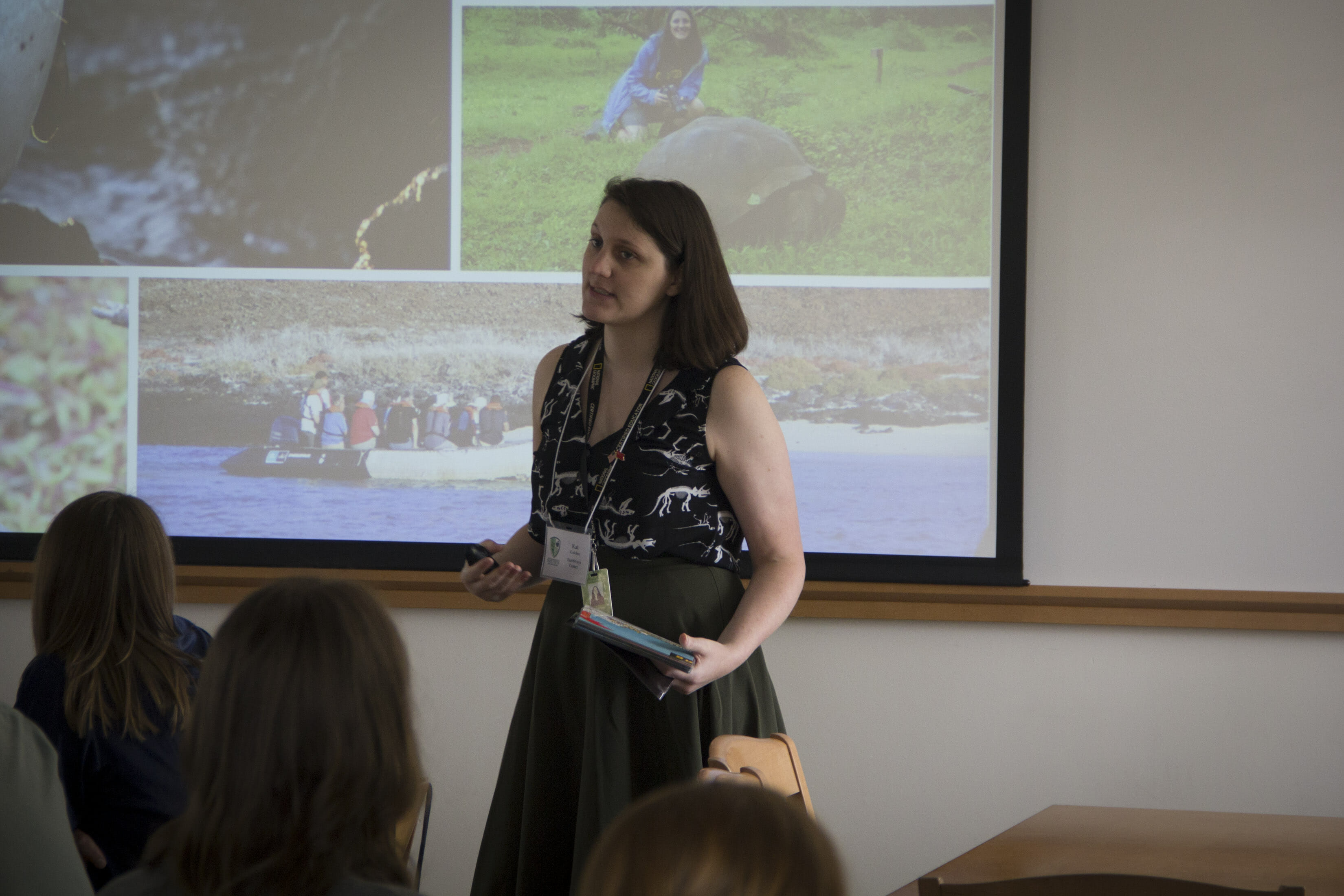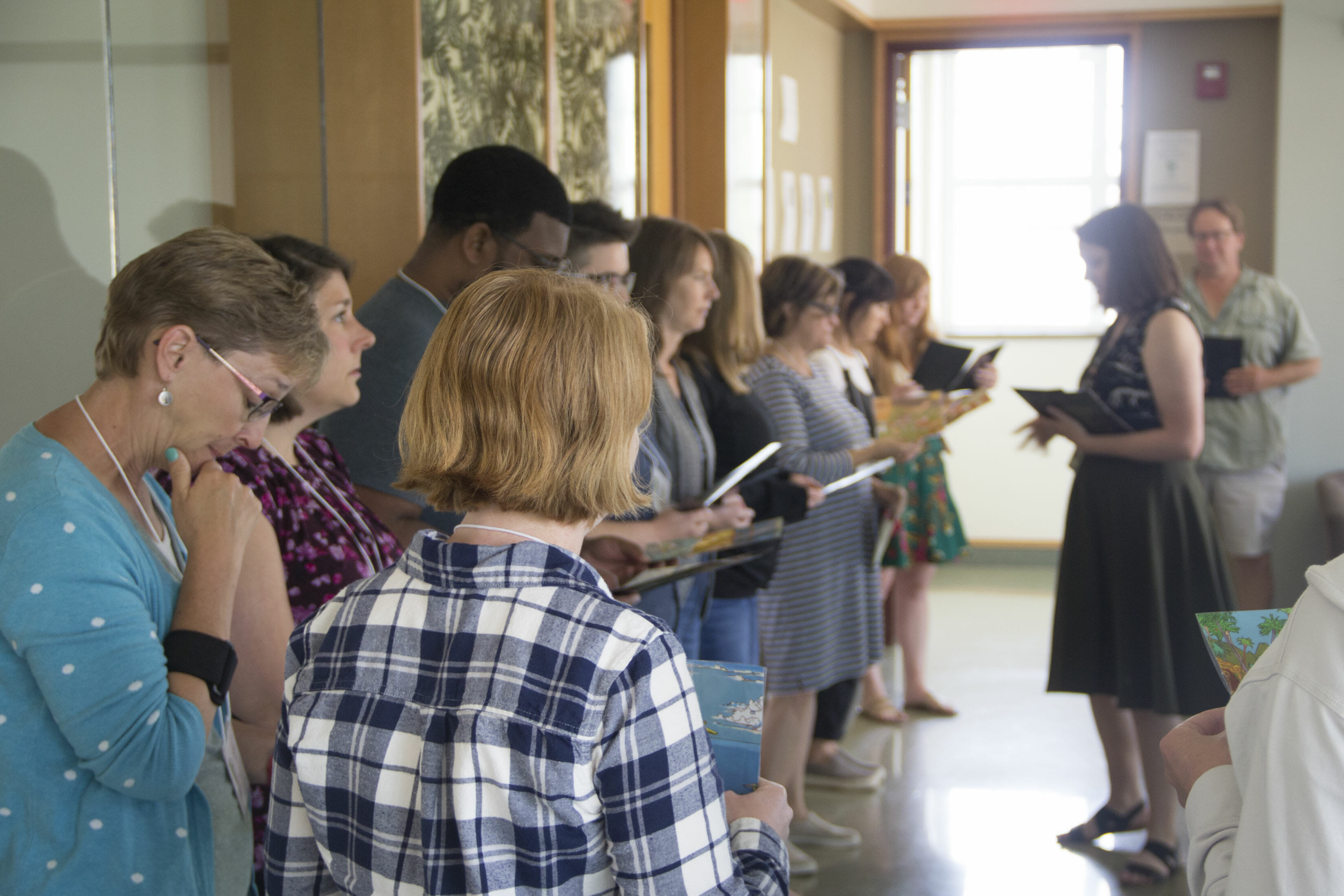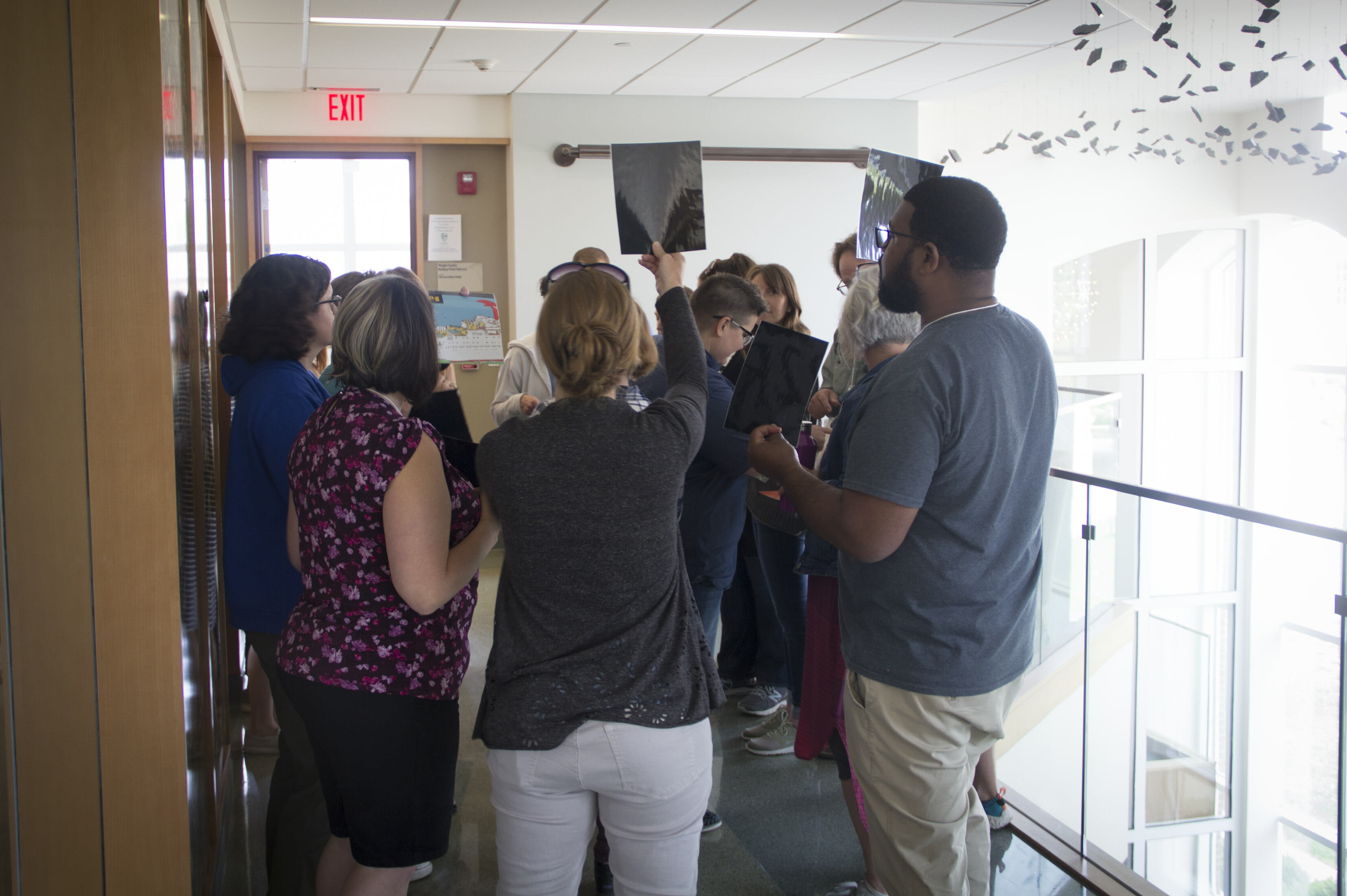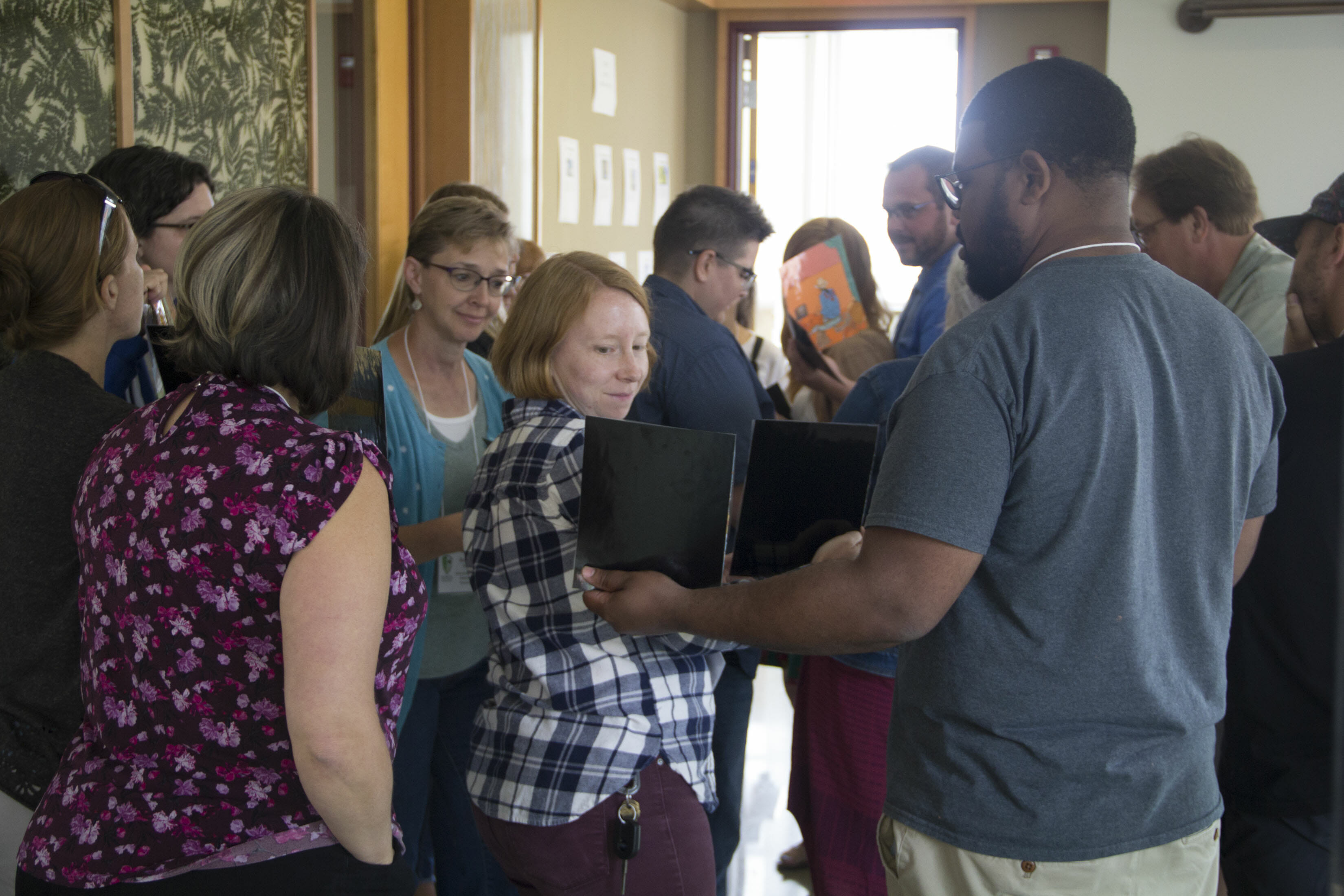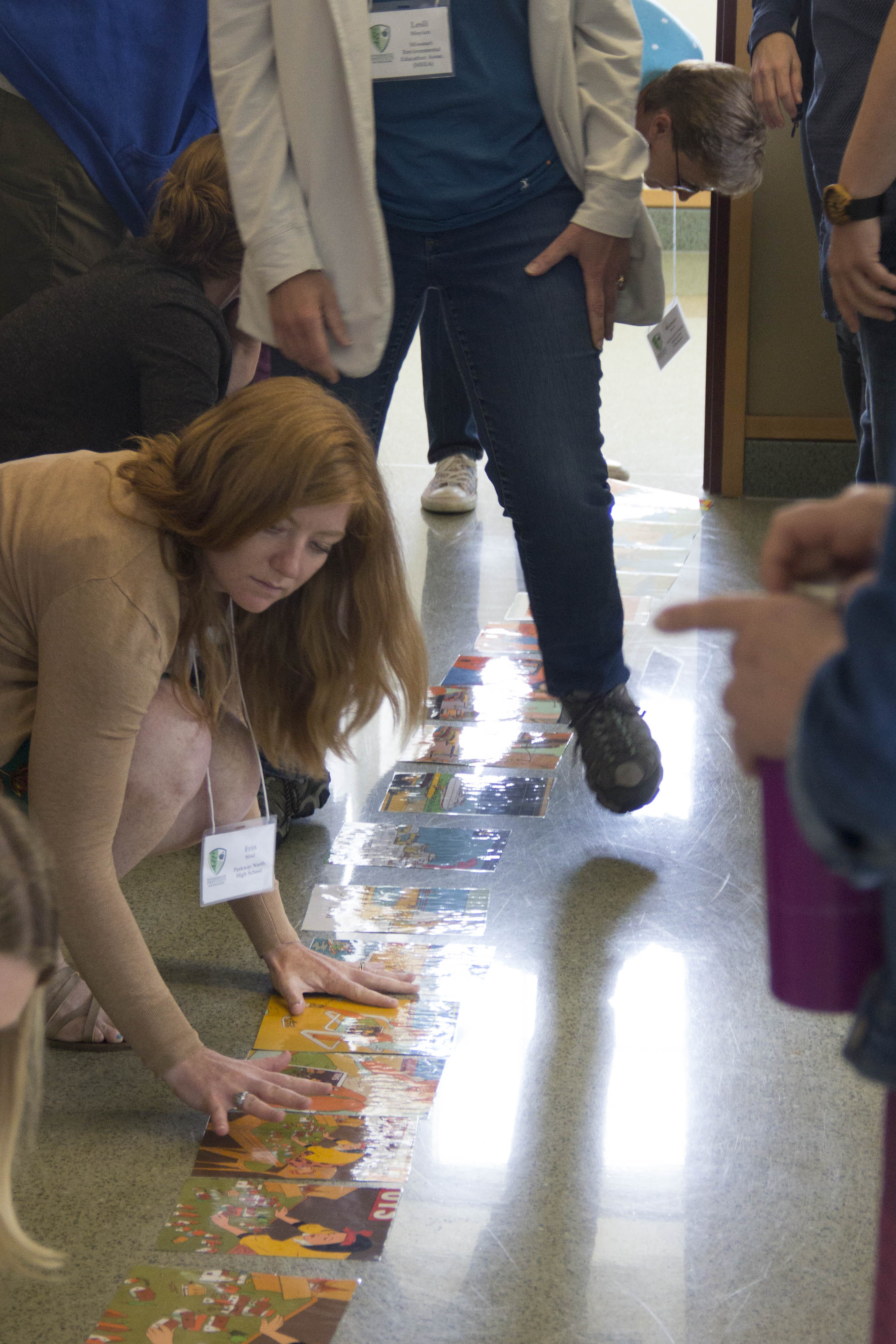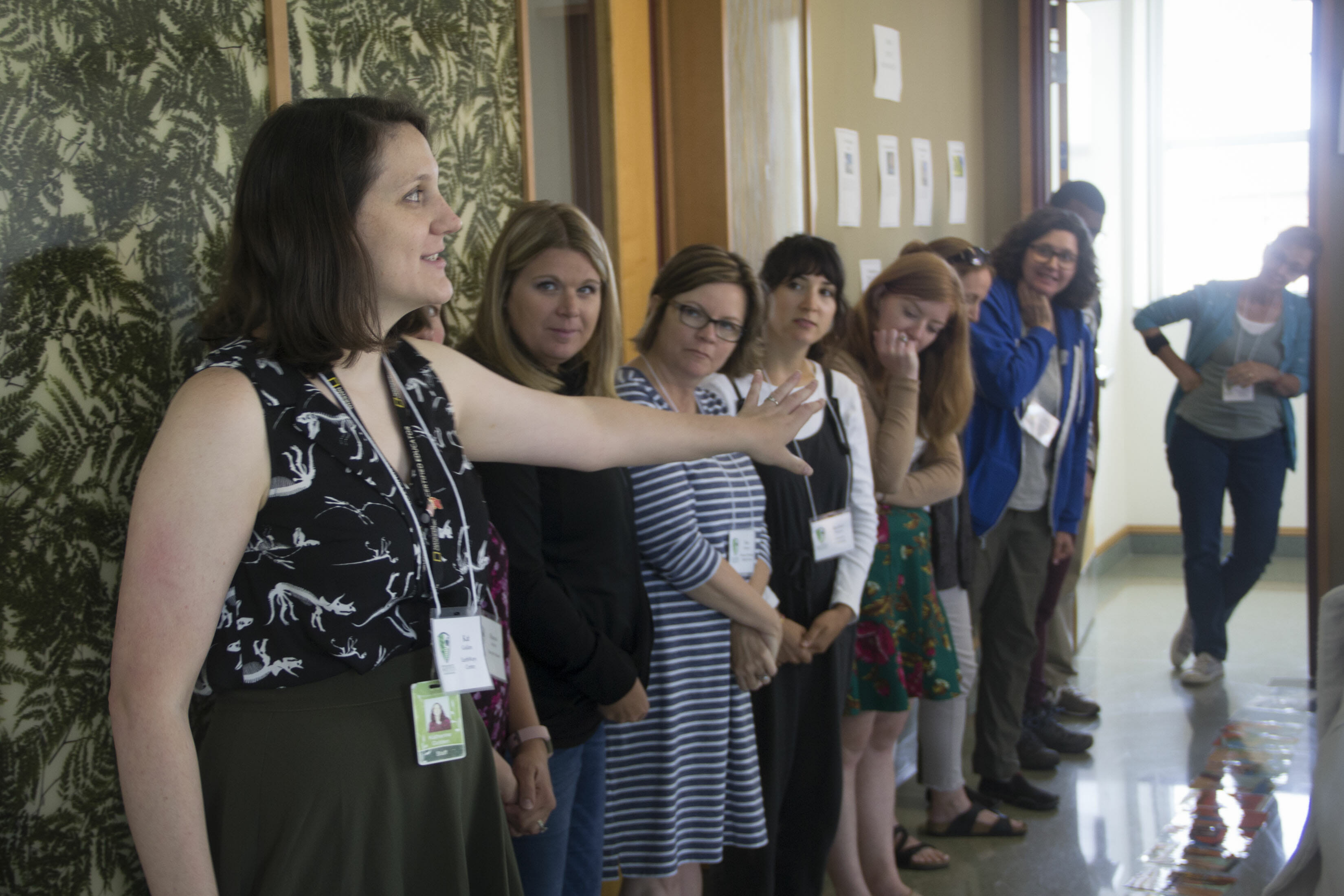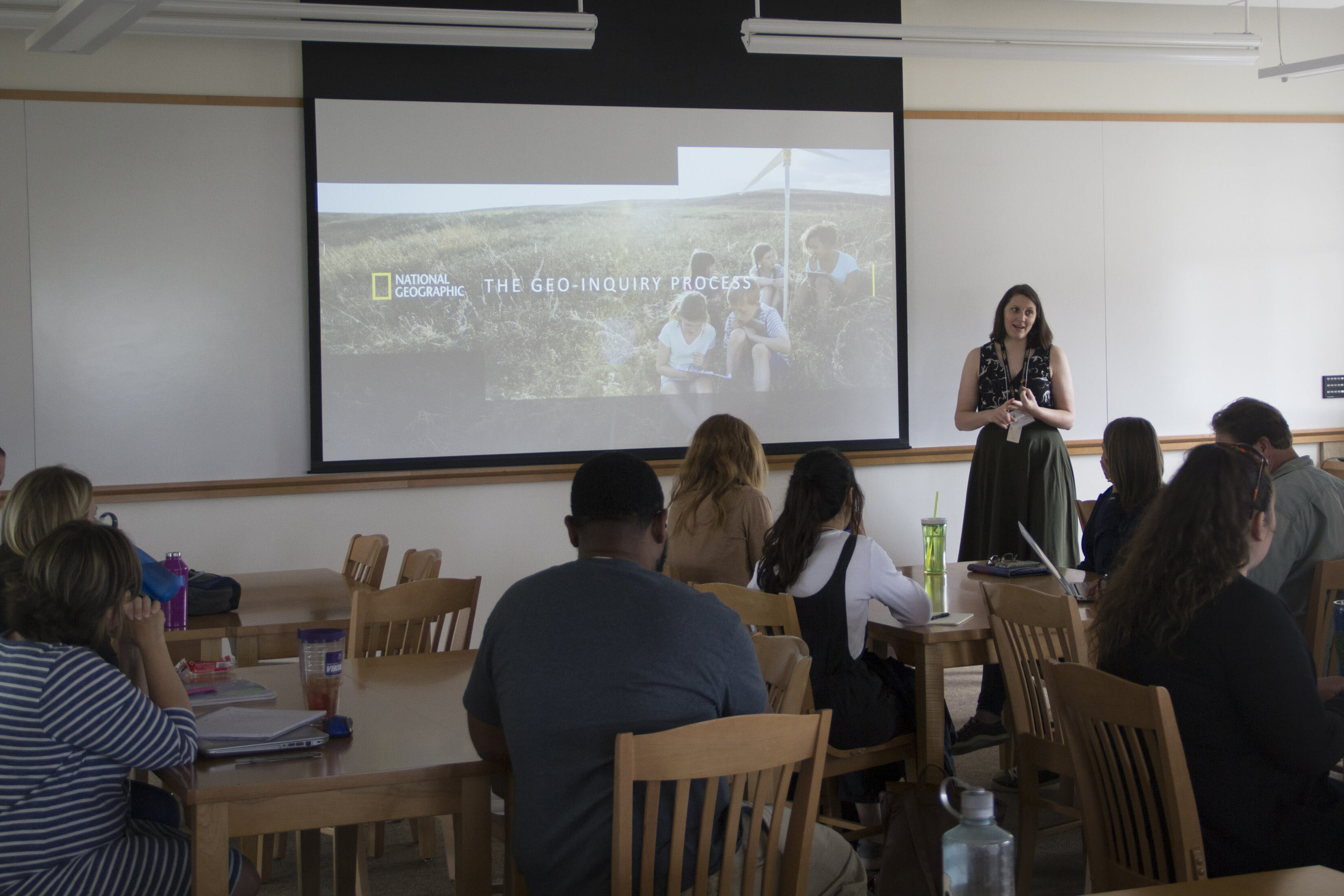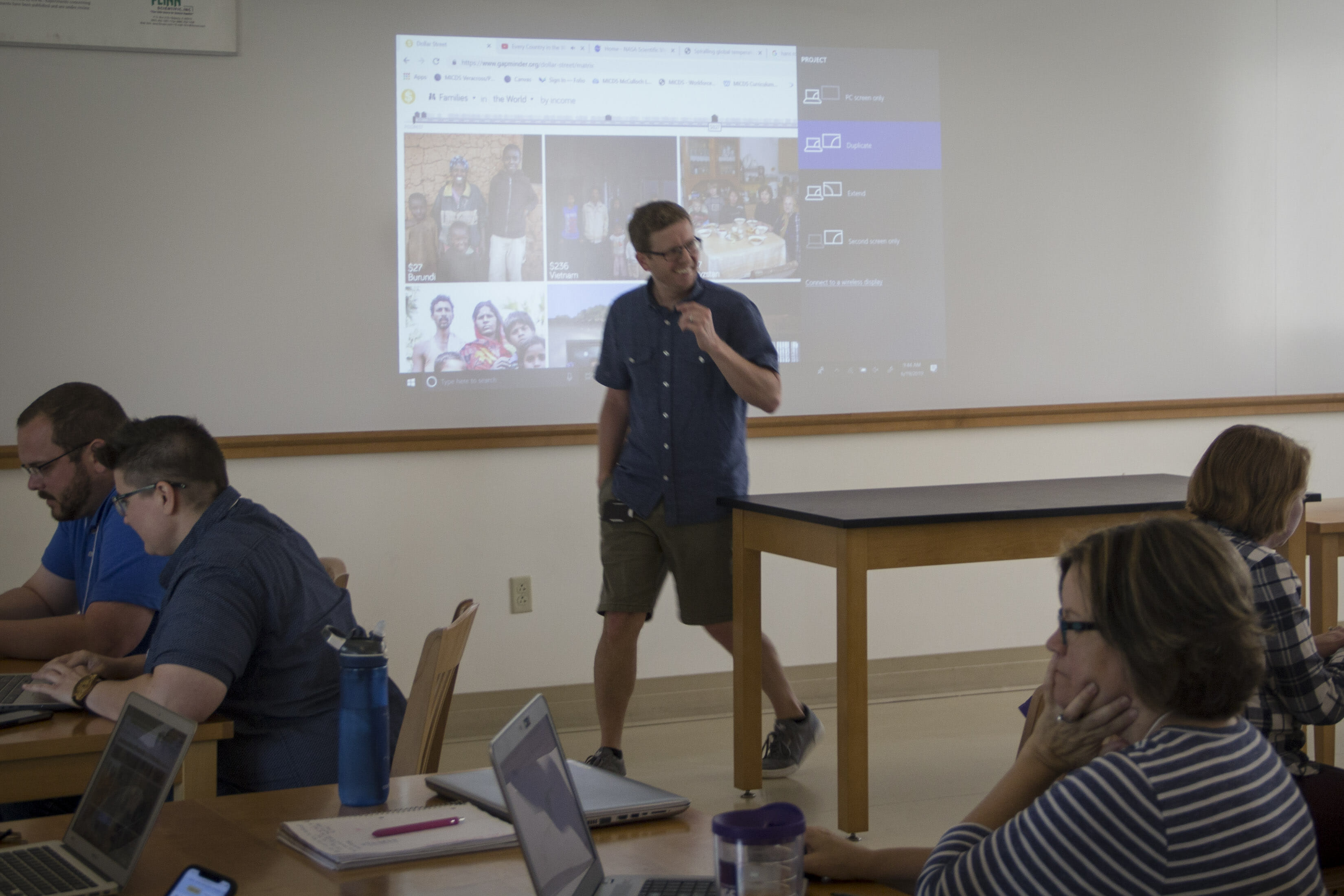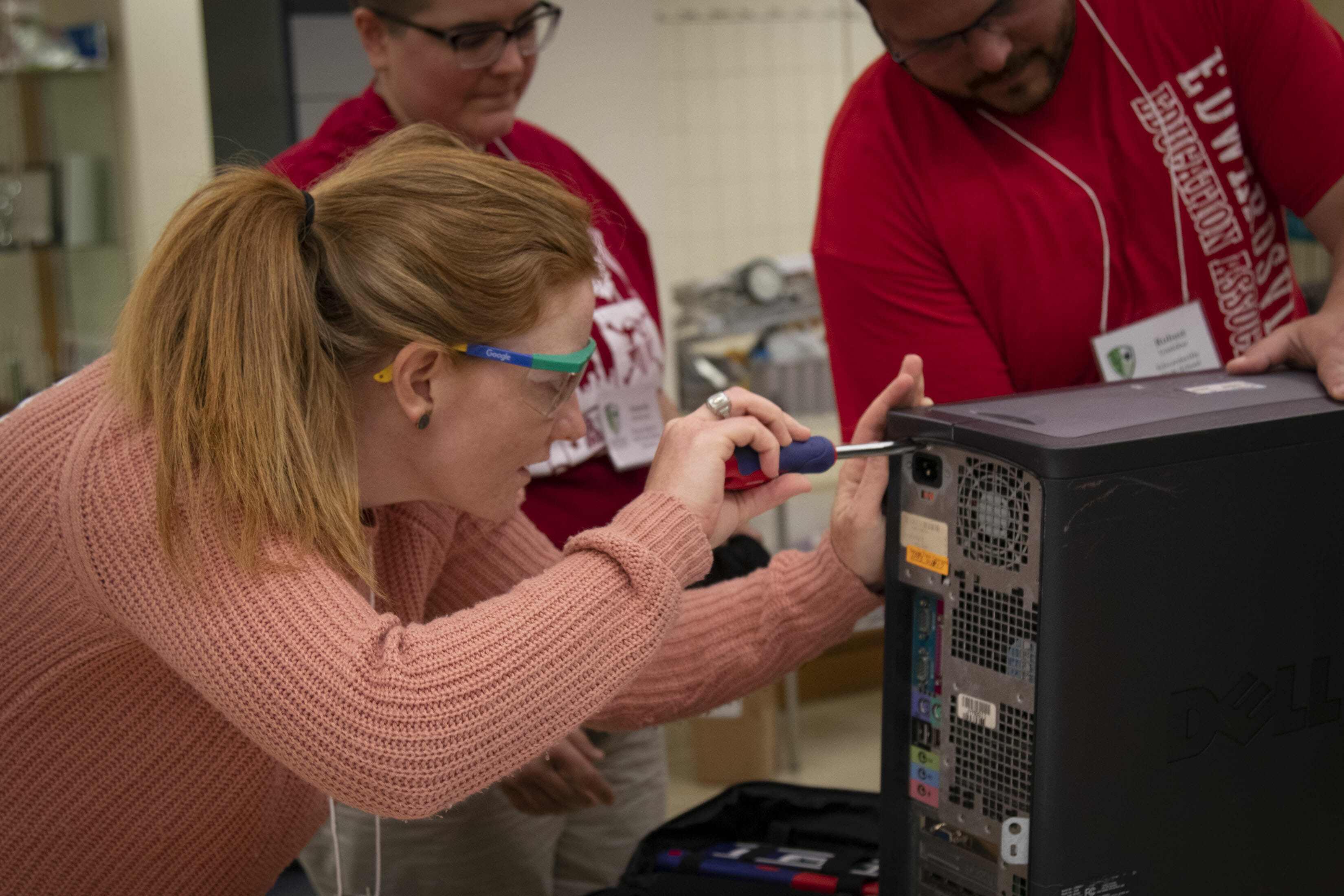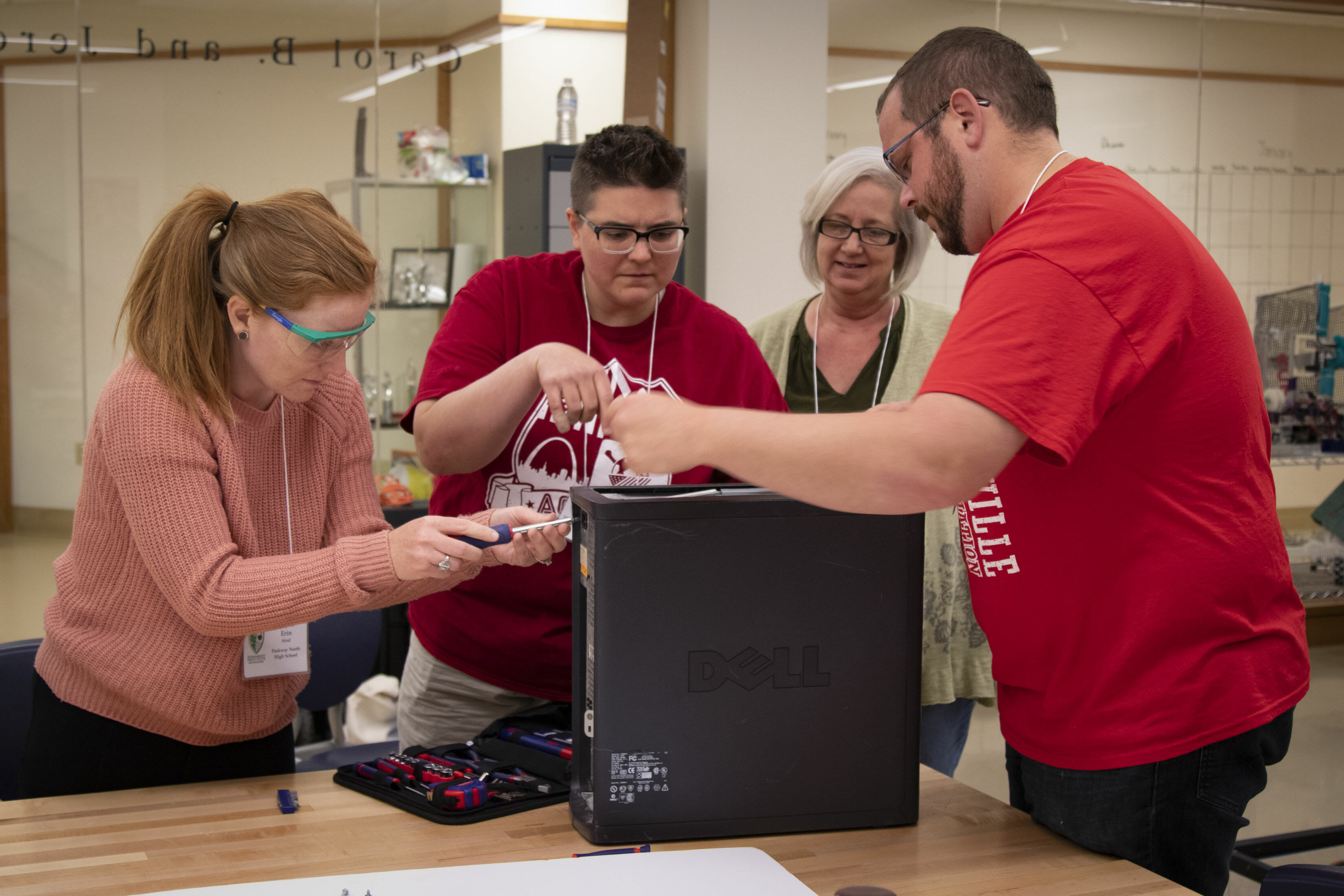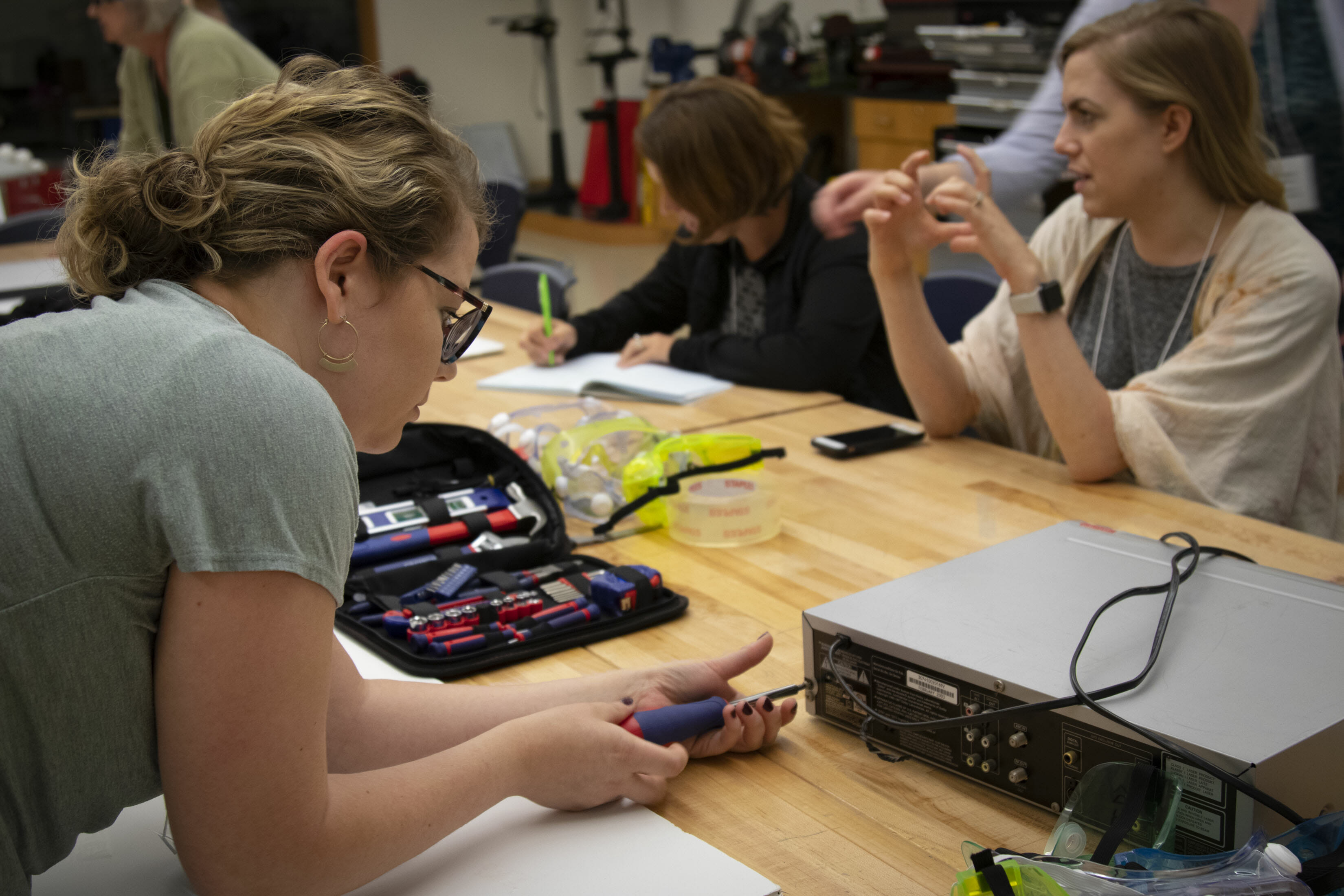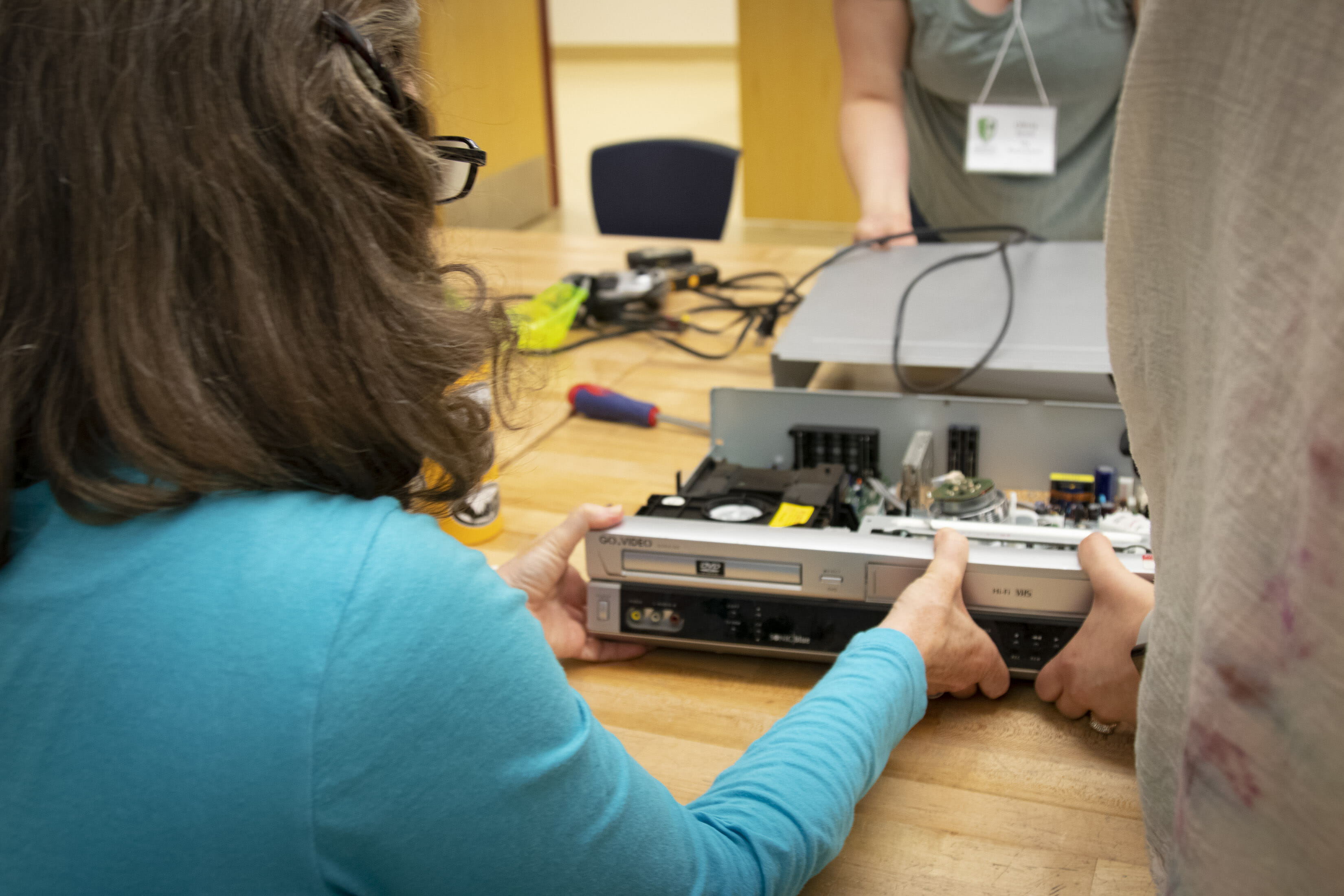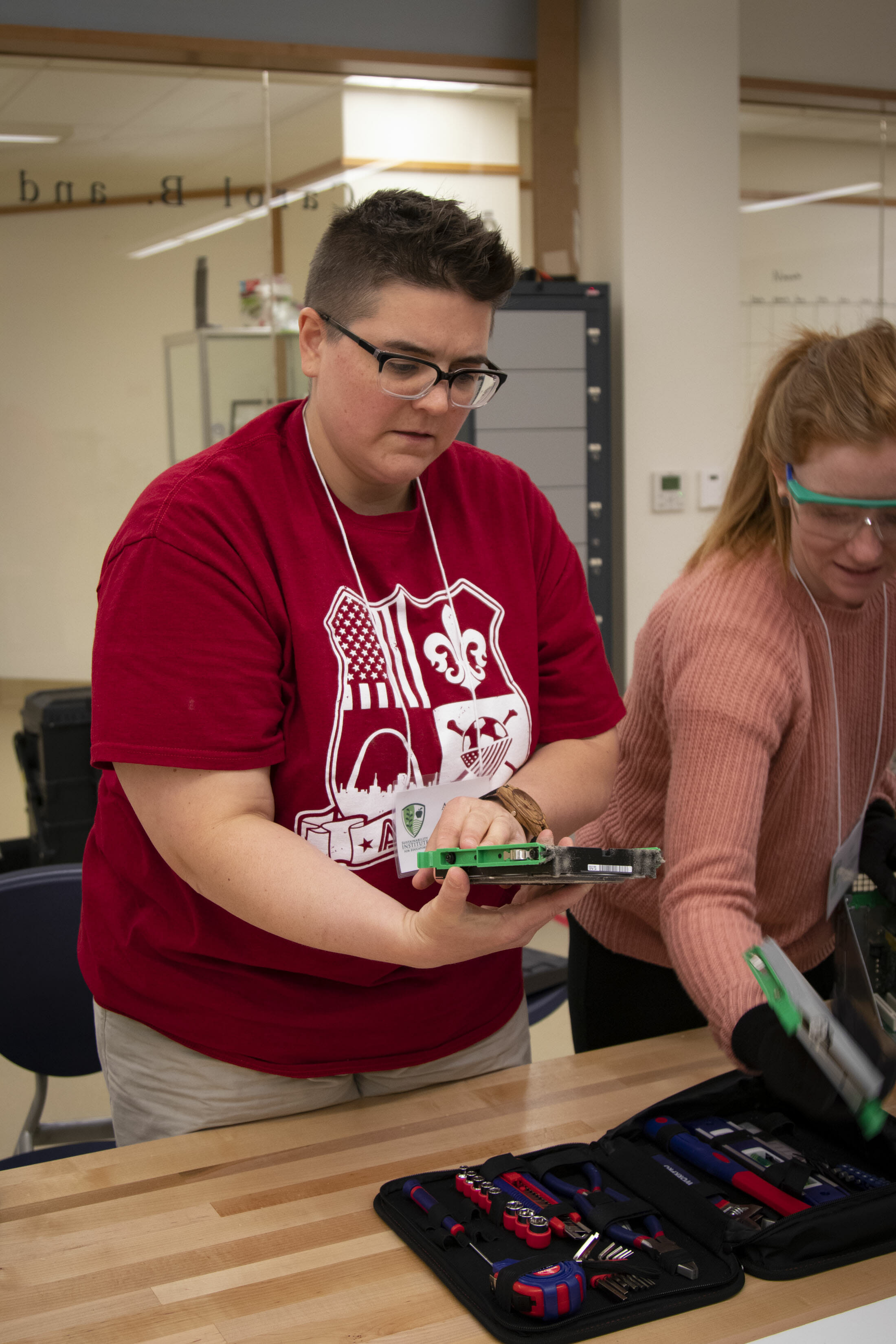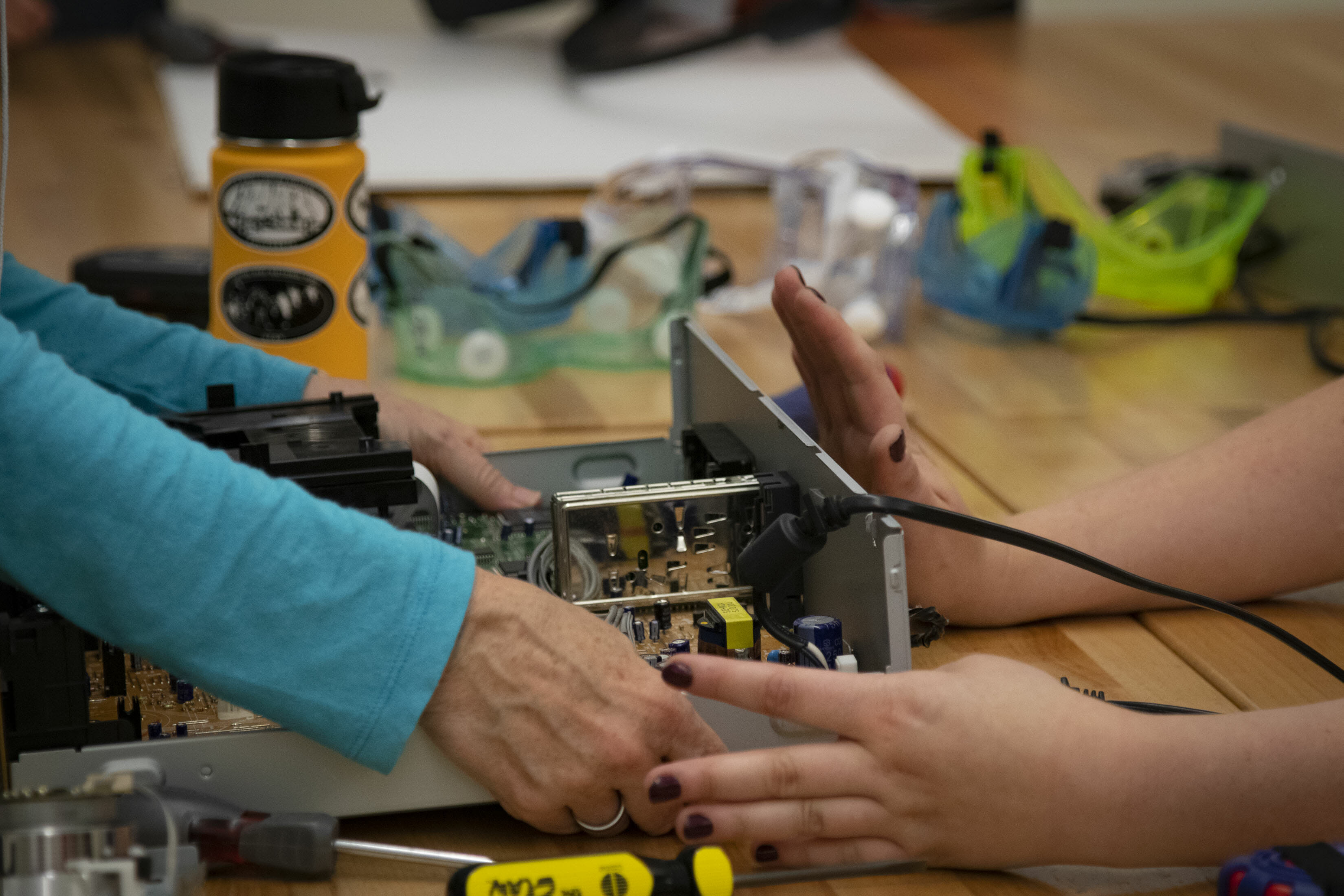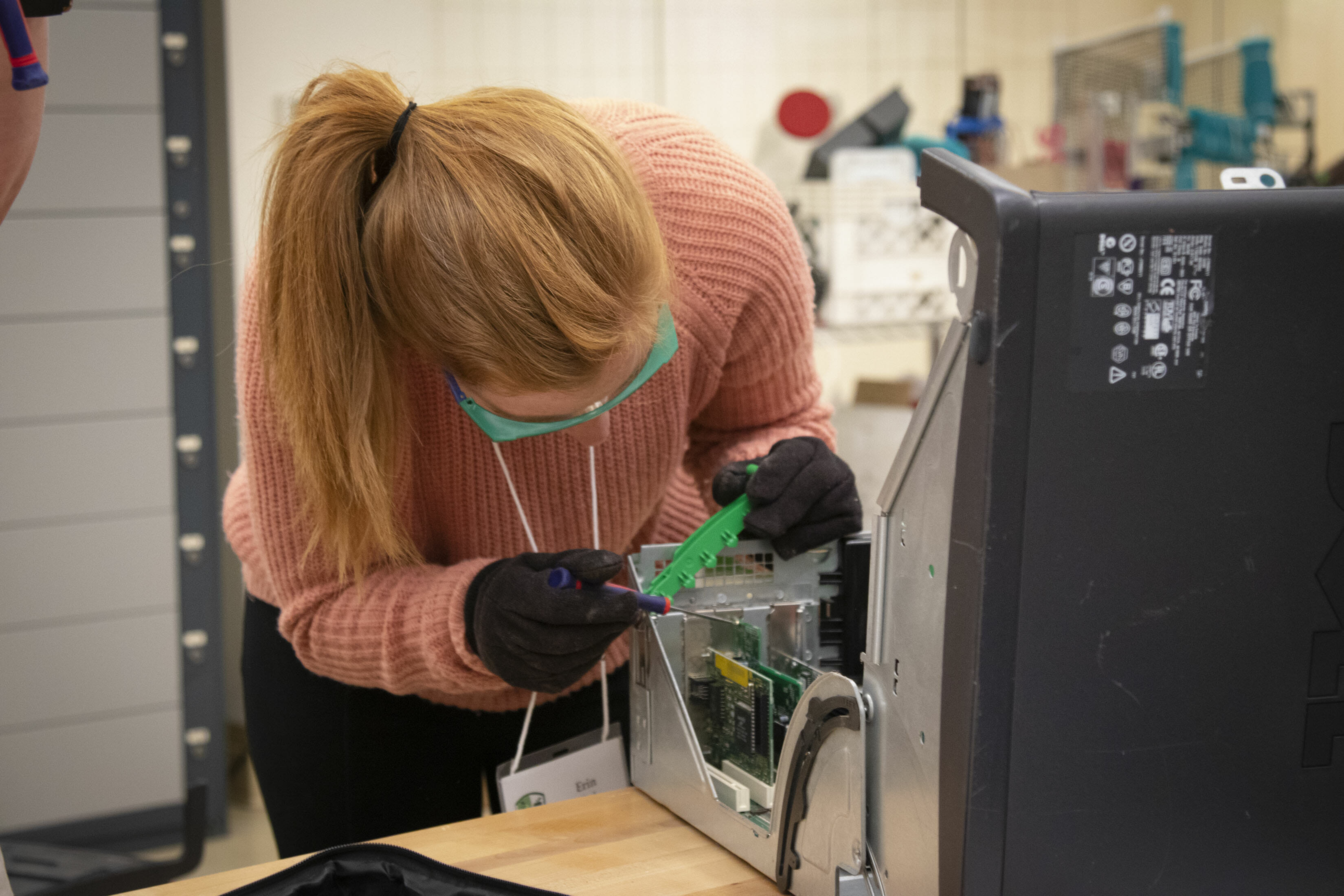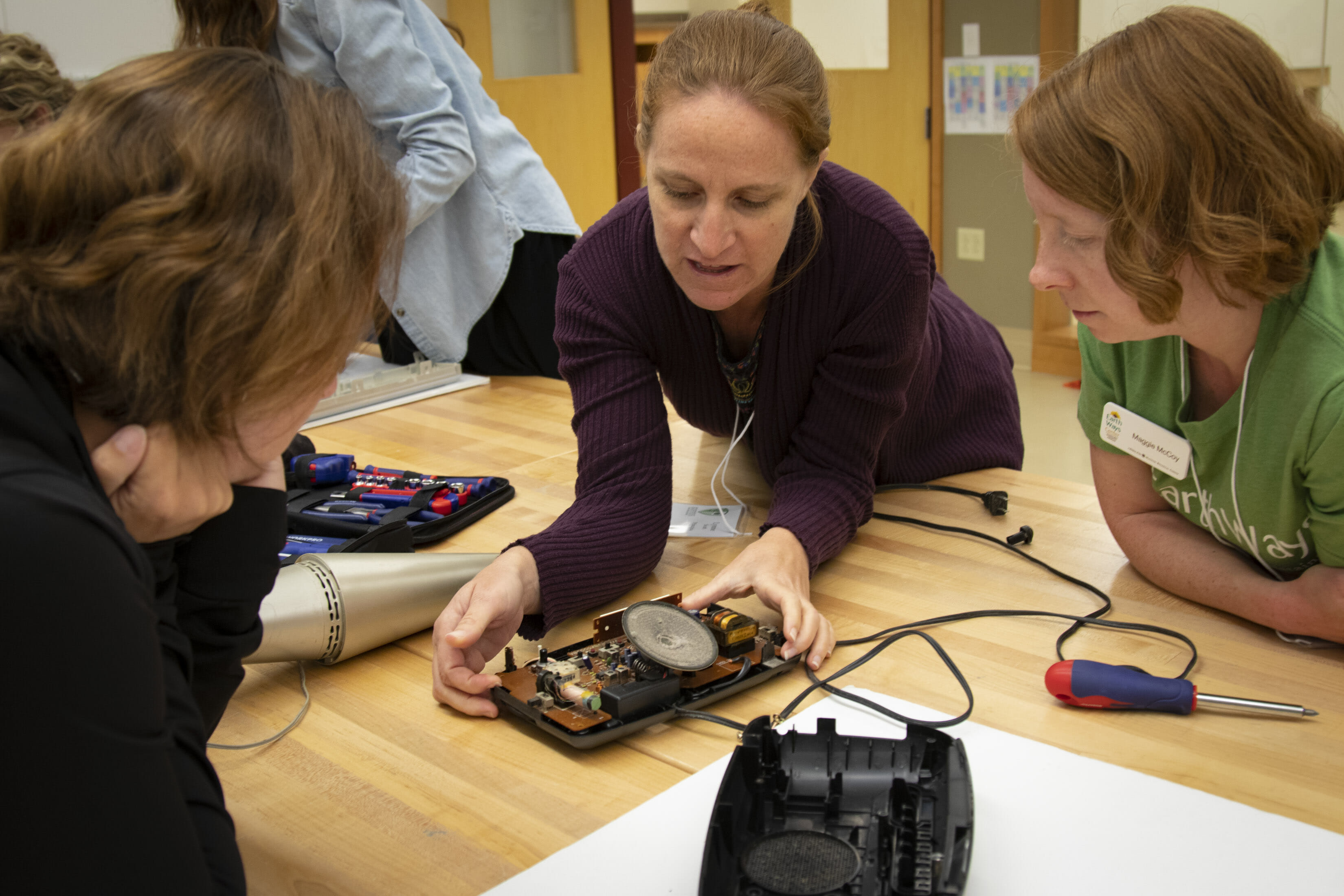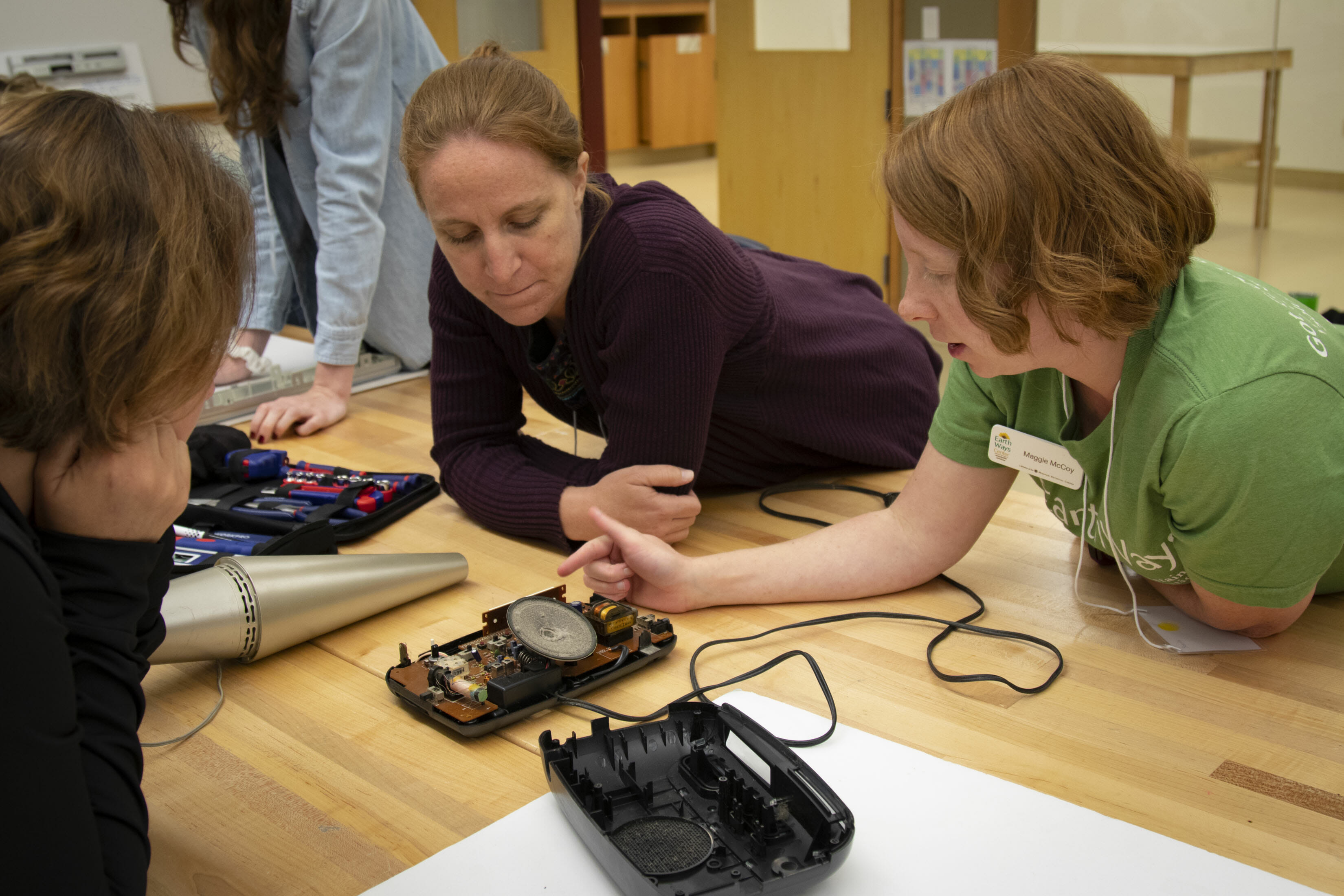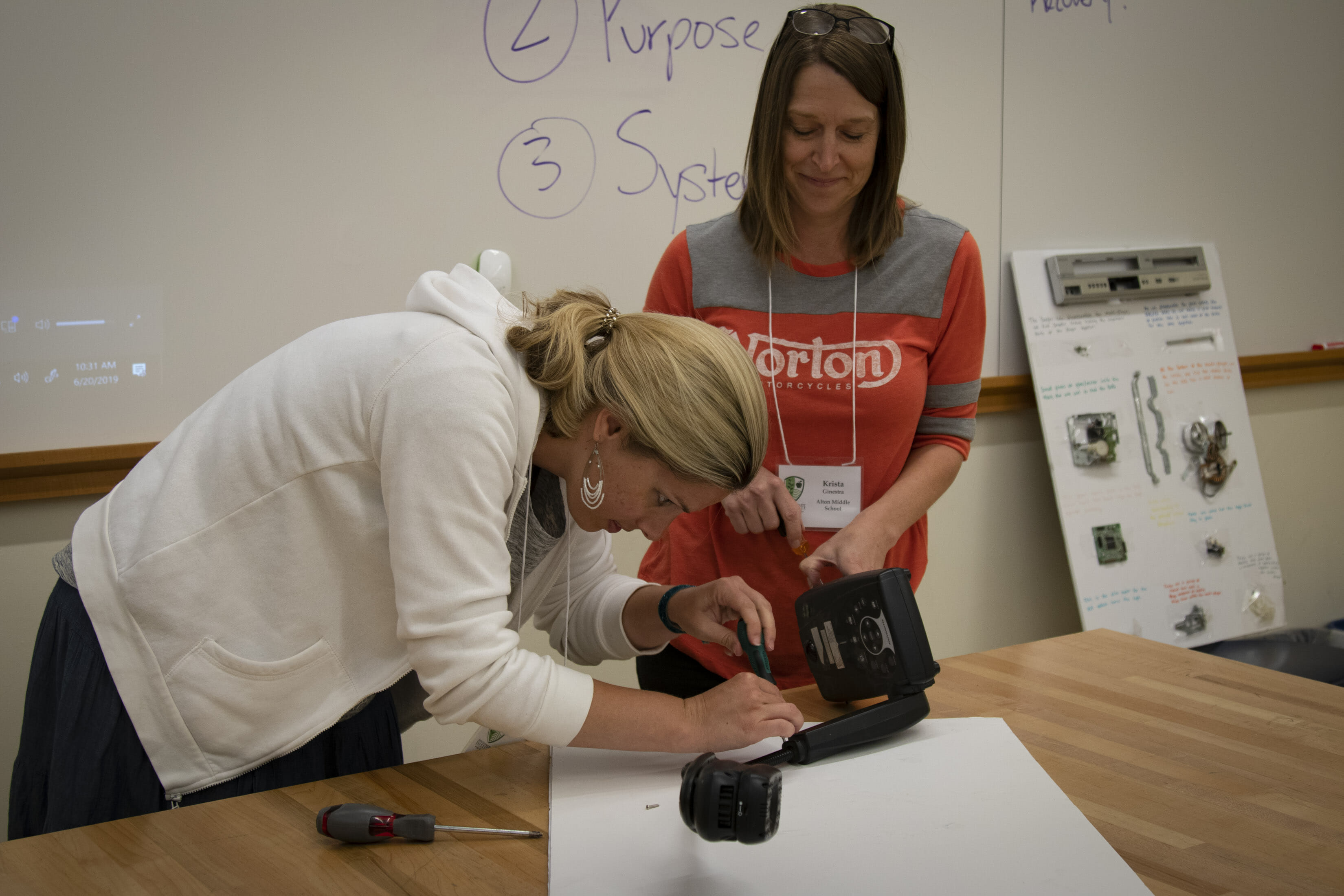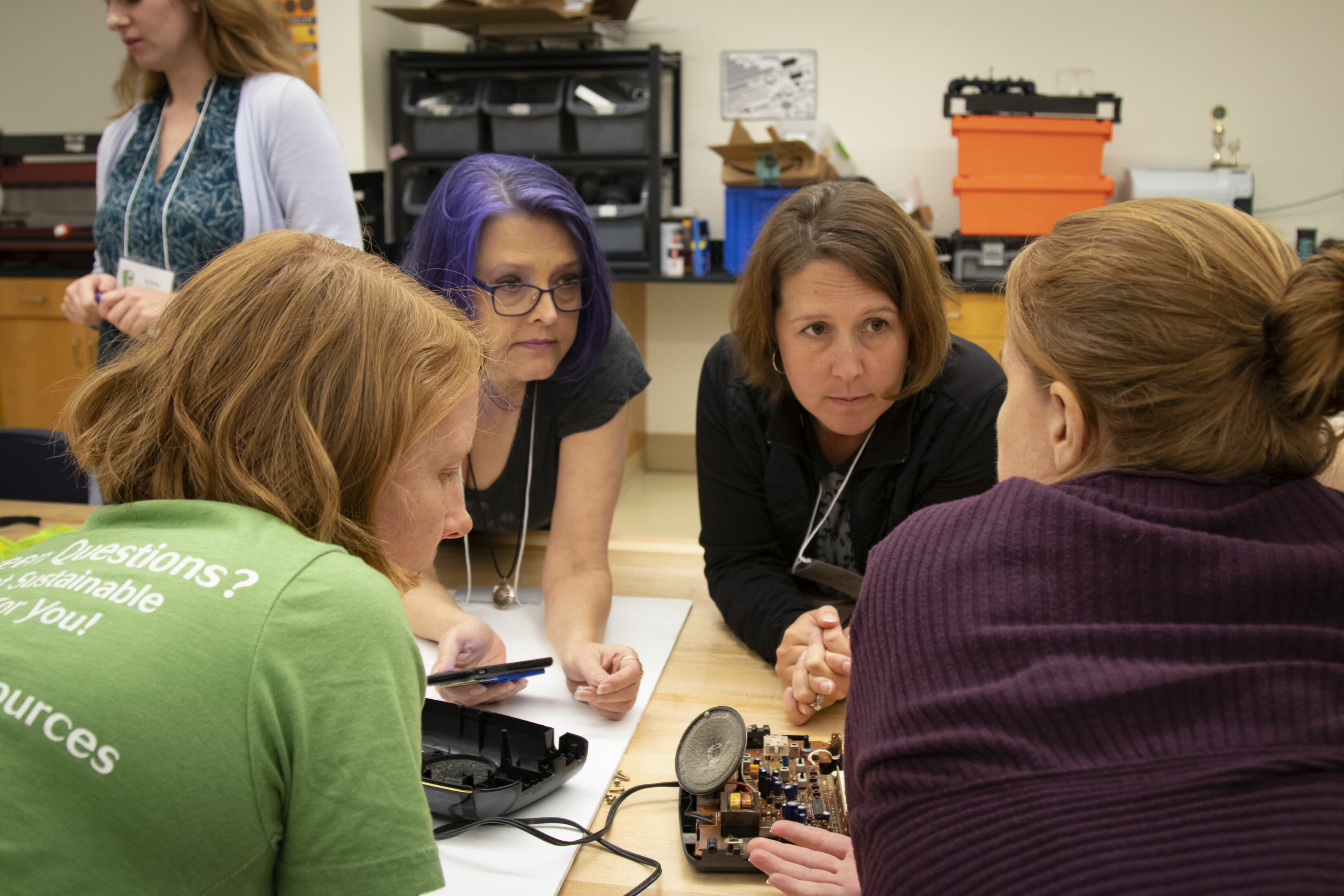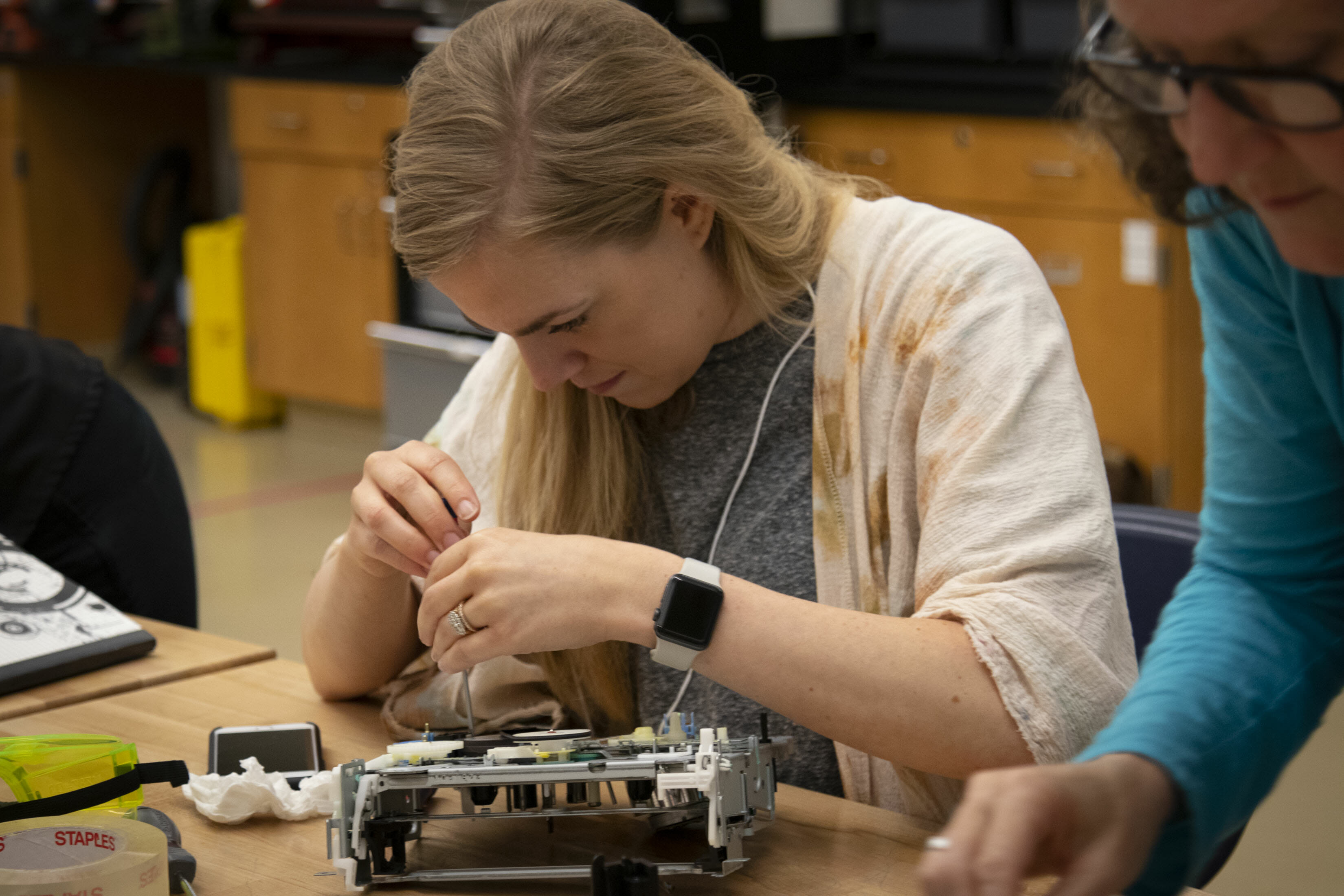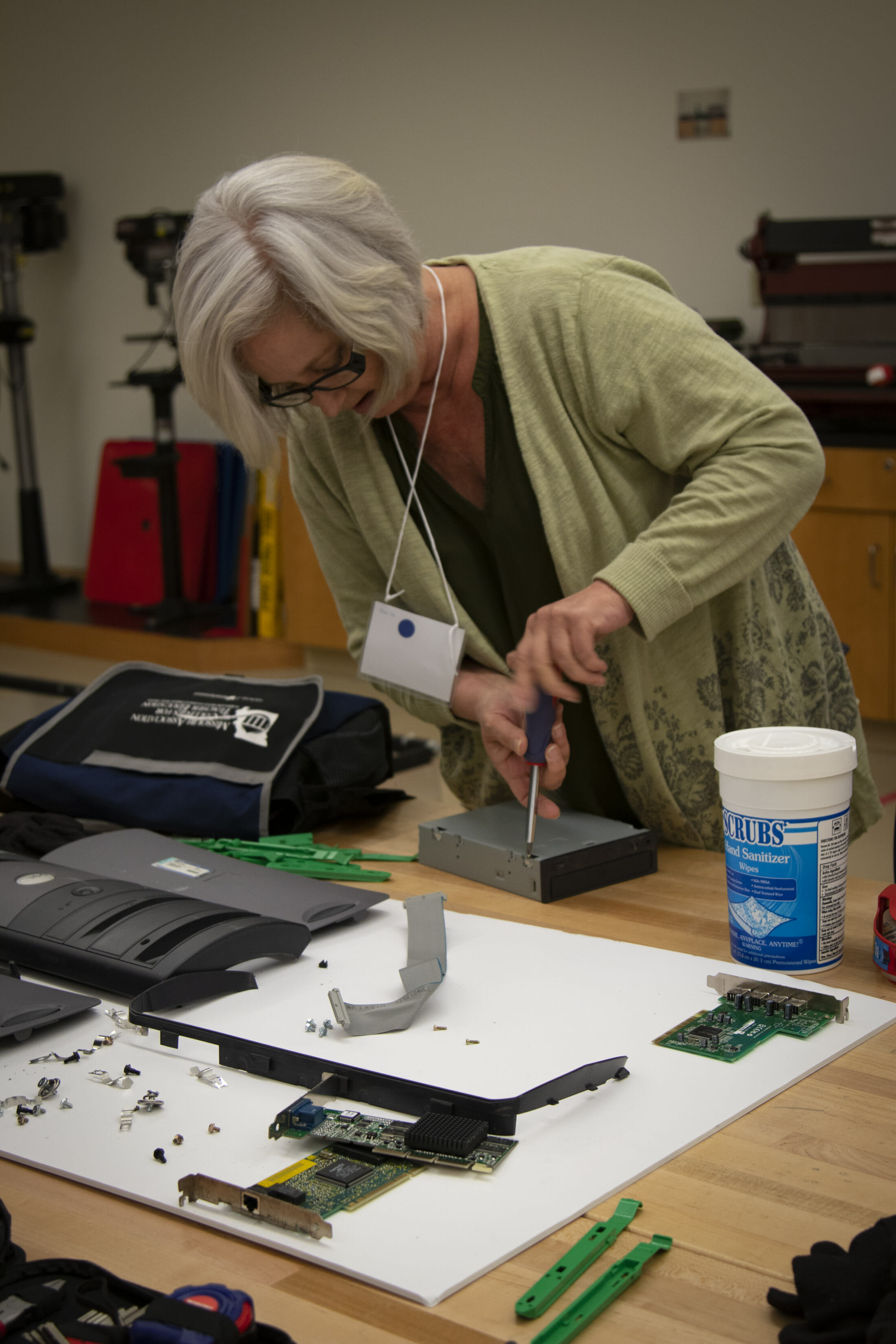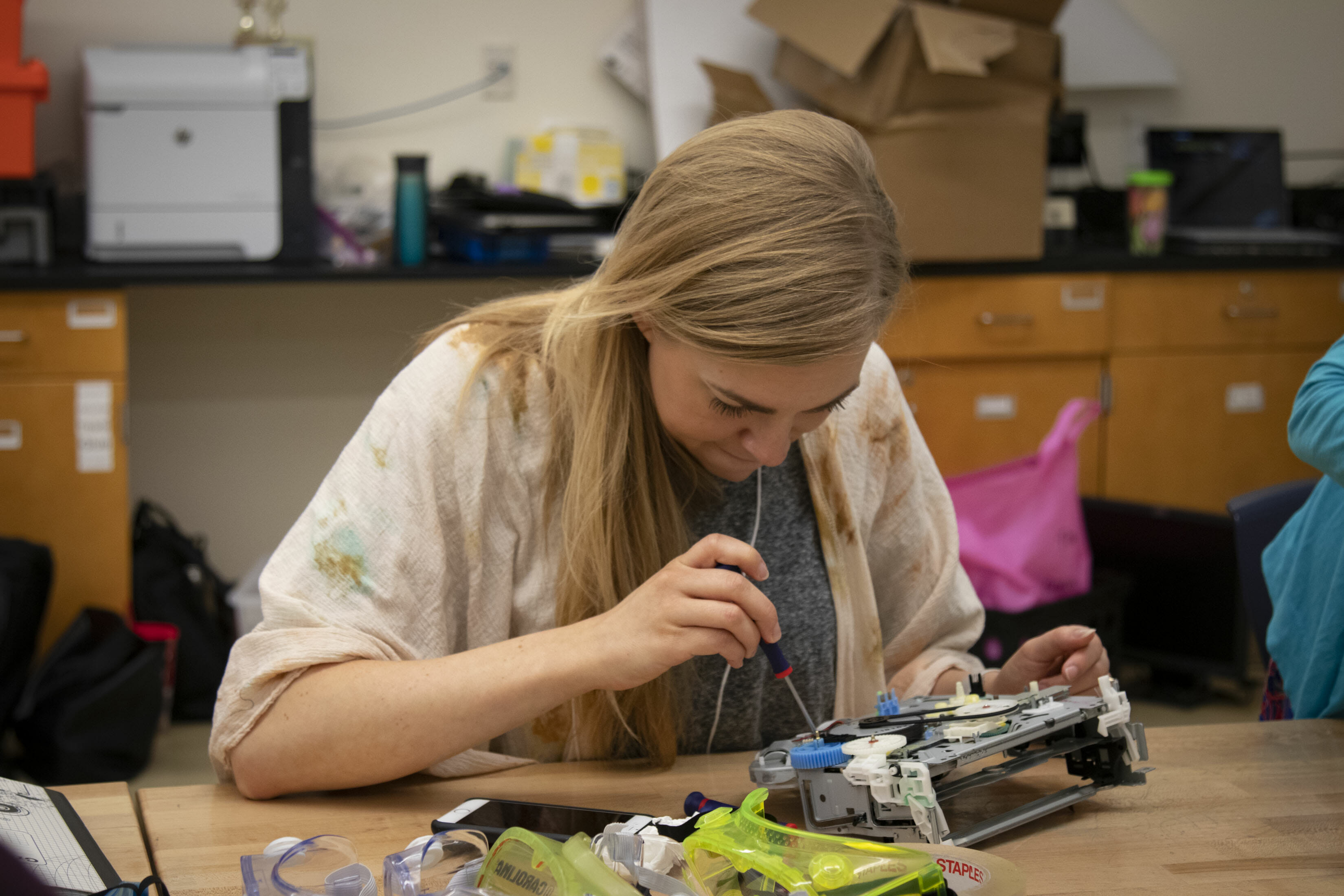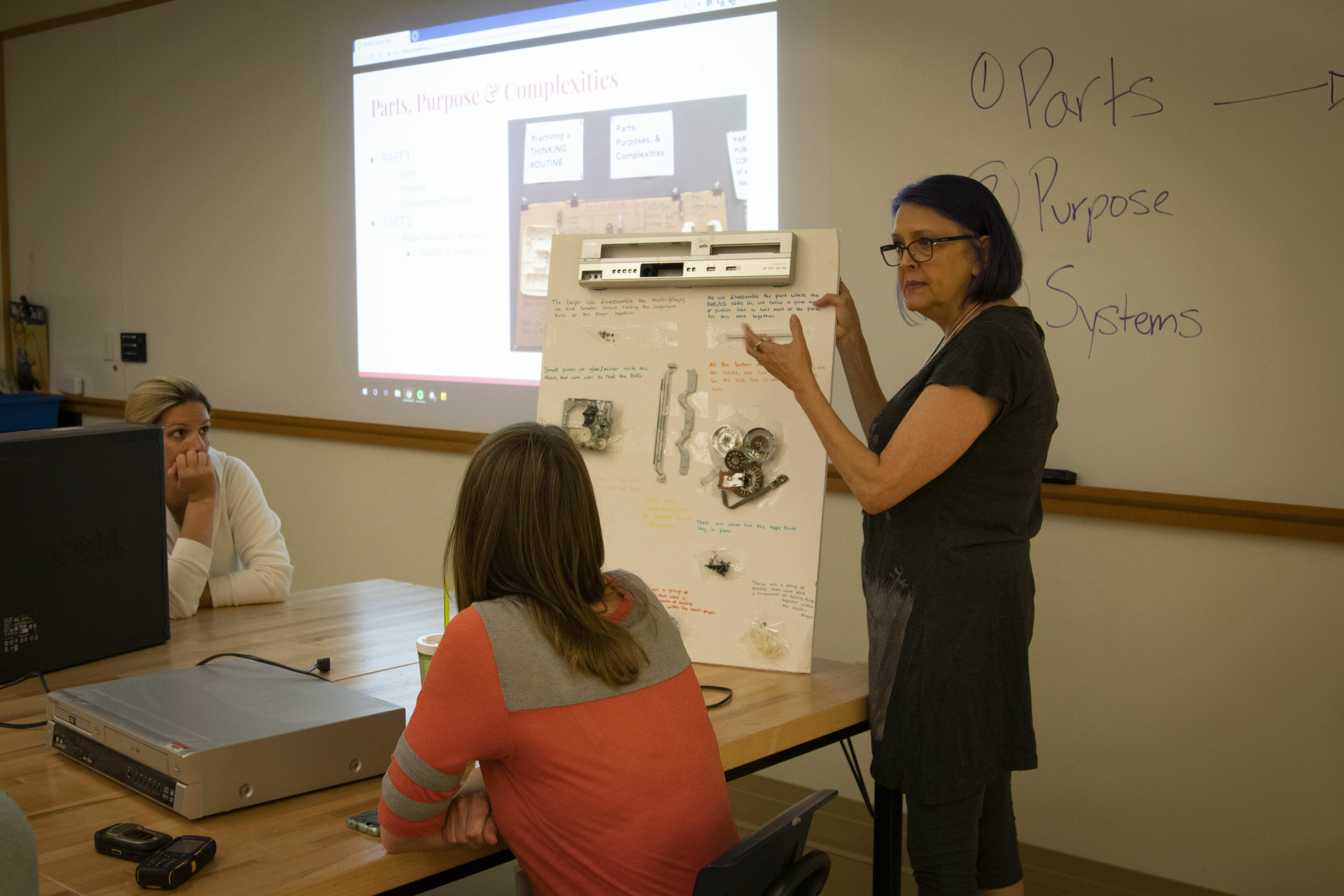MICDS teachers took advantage of two professional development opportunities on our own campus this summer: STLinSTL and the Sustainability Institute for Educators (SIE).
STLinSTL, also known as the Summit for Transformative Learning in St. Louis, gathered more than 350 educators from 15 states June 2-4 for three days of learning and engaging with peers on the MICDS campus. All MICDS faculty members participated in the summit. The 5th annual conference offered 90 sessions that brought educators together in small group settings to explore new ideas for maximizing student engagement and learning.
Attendees chose from sessions related to the conference’s themes: Amplifying STEM, Best Practices in Pedagogy and Assessment, Contemporary Literacy and Fostering Diverse, Equitable and Inclusive Schools. Fifteen MICDS faculty members were among the presenters. Elizabeth Helfant, Coordinator of Pedagogical Innovation and Director of STLinSTL, said, “As learning scientists, we need to make smart, measurable goals to ensure we are perfecting our practice. We aren’t doing something new—we are doing what we do better, and what research shows works for learning.”
At the 8th annual Sustainability Institute for Educators (SIE) June 18-20, 60 participants from 16 independent and public schools and eight agencies and organizations gathered at MICDS to connect and work on understanding the science, economics and social implications of our world. The three-day workshop challenges participants to examine current issues in sustainability while considering how people and schools are connected to these issues. Through hands-on activities, special guest lecturers, certificate programs and more educators build awareness, increase knowledge and demonstrate understanding of core concepts, content and habits in sustainable learning and living. Participants leave with tools, resources and new perspectives about the world around them to take back to their school community.
Bob Shaw, JK-12 Science Department Chair at MICDS and Kevin Hava, Upper School Science Teacher, both presented. One educator shared on the second day, “There’s a whole world of technology that I have no idea about. I’m excited to learn more.”
A great example of the hands-on work participants enjoyed was a workshop on designing for sustainability. Guests disassembled electronics as part of an exercise to spark thinking about design in regards to sustainability. Are the products easy to take apart for repair? Do they use all the same types of screws? Do they use glue? Is the color embedded in the material (good) or painted on (bad)? Are the components recyclable or re-usable in a different way? The two teachers who presented said that after students complete this exercise they never look at electronics the same way again. Many make a point to try to find technology that is made sustainably. The SIE guests took apart a tower computer, a clock radio, a VCR and an object projector, and learned how they can incorporate this exercise into their science classrooms.
